The Australian National University Law Student’s Society



2024
edition Careers Guide



Acknowledgement of Country
We acknowledge the traditional custodians of this land on which we meet and gather, the Ngunnawal and Ngambri peoples, and pay our respects to elders past, present and emerging. We acknowledge that sovereignty was never ceded and this always was and will be Indigenous land.

Acknowledgements
We wish to thank all those who have made the production and publication of the 2024 Australian National University Law Students’ Society Careers Guide possible.
Our sincere appreciation goes to the authors who have contributed their wealth of knowledge and experience to the Guide.
Disclaimer:
The views expressed in this publication do not necessarily reflect those of the editors or the Australian National University Law Students’ Society.
Although best efforts have been made to ensure that all the information in the publication is correct as at March 2024, this is subject to change without notice.
This publication is distributed free of charge with the understanding that the authors, editors, and any persons related to this publication are not responsible for the results of their actions or omissions on the basis of any information provided in this publication.
This information is advisory, and as such should not be relied upon as being professional advice.
Vice President (Careers): Emmy Xie
Publications Director: Jasmine Burton
Vice President (Sponsorship): Charli de Greenlaw
Careers Directors:
Gina Harrison
Olly Neates
Jess Lovatt
Barbara Vuskovic

The ANU Law Students’ Society is grateful for the support of the 2024 Careers Guide sponsors:
Naming rights:

Premier sponsors:


Major sponsors:

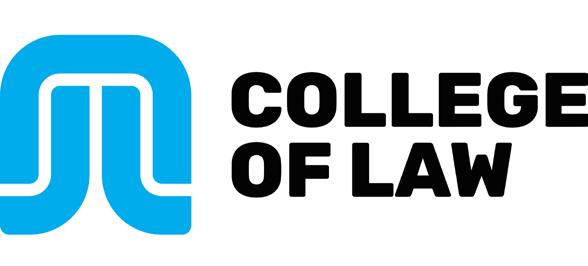
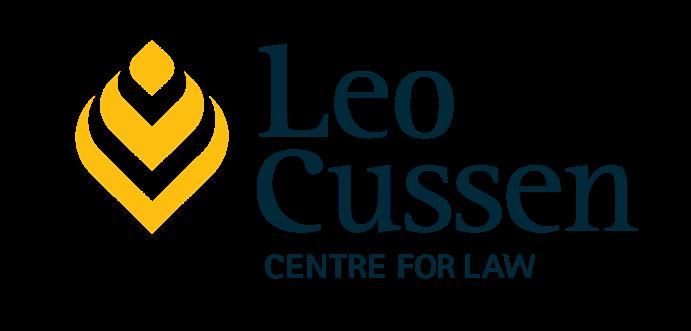




Other:








5

08/ president’s welcome 09/ Editor’s notes 10/ Law school to career 22/ Private Practice 39/ The Courts, Bar and Advocacy Clerkship Tracker Clerkship Advice: An Inside Scoop 24 25 ANU Law Students’ Clerkship Experience 27 Matina Kouparitsas Shares Her Journey From Student to Lawyer at MinterEllison 28 Tips from a Former Clerk 29 Clerkship Tricks of the Trade 30 The Long and Rewarding Road into Employment Law 33 Intellectual Property Law - A Career at the Intersection Between Innovation and the Law 34 Corporate Advisory: The Dynamic Practice of Navigating Contracts, Capital and Clients 36 My Pathway into Litigation 38 Pre-penultimate opportunities Applications 101 12 13 Requirements to practice Law in Australia 20 Requirements to practice Law in Australia 20 Insights, Opportunity, and Incredible Timing as a High Court Associate A Life in Law: From ANU Law School to Supreme Court Judge 42 44 A Spotlight on Gregor Urbas: ACT Special Magistrate 45 A Different and Rewarding Pathway After Completing a Law Degree 47 Never Boring - Life at the Bar 49 Contents 6 Unusual Pathways 51 Lessons from my Clerkship at Clayton Utz 31

55/ The Public Service 64/ Public interest law and social justice 72/ Academia 80/ Firm Materials Contents From never to in-house: don’t knock it till you’ve tried it 53 My Journey to the Public Service My Pathway to Public Law 57 59 My APS Journey as a Government Lawyer 61 The Journey Towards International Law 62 Access to Justice is Every Lawyer’s Responsibility The Experience of a Social Justice Advocate 66 68 The Global Challenge of International Law 70 Making a Career Out of Academic Law Pursuing Different Paths 74 76 Academia as a Career Choice 77 An Unusual Route in Academia 79 Premier Major Leo Cussen College of Law Johnson Winter Slattery Clifford Chance Allens Linklaters Corrs Chambers Westgarth Gilbert + Tobin Herbert Smith Freehills King & Wood Mallesons 7 Ashurst Clayton Utz Jones Day MinterEllison Maddocks Norton Rose Fulbright Arnold Bloch Leibler Aldermane
President’s Welcome
It is with great excitement that I welcome you all to the ANU Law Students’ Society’s Careers Guide for 2024, produced once again in partnership with Sparke Helmore. This guide will step you through the ever-evolving world of the legal profession, where we aspire to present to you as many pathways as possible to match the increasingly diverse interests and goals of our ANU Law Cohort. You will also find contained herein practical advice to help you to attain your career goals, showing you the stepping stones from law school across to a fulfilling and exciting career.
The LSS Careers Team has sought to incorporate a broad range of content and resources from across the legal field into this Guide. This has been an approach the LSS has adopted for many years now in the hope that our law students can make decisions fully informed on all of the many avenues open to graduates of the ANU Law School. Among the vast array of careers in this guide; spreading from corporate law, government law, social justice and legal reform, academia, international law and associateships; we hope that some will resonate with you and help guide your career development in the years to come. The LSS is grateful to its corporate sponsors, ANU College of Law academics, recent graduates and other professionals for their contributions to this Guide. Regardless of what stage you are at in your journey through the law, we have no doubt that the information, advice and insight available in the coming pages will be of value to you.
The ANU LSS is the Australian National University’s largest student representative body for law students of all ages and stages of their qualification, and we are very proud to host a range of events focused on careers throughout 2024 for your benefit. Our flagship Clerkship Evening will take place this year on 6 May 2024, providing the incredible opportunity for networking and sharing of experiences and knowledge between our law students and representatives from our corporate sponsors. The LSS also holds firm visits throughout the year for exposure to the physical reality of a career in law, runs careers workshops to aid in career-related skills, alongside a host of other opportunities in the careers
space across the year. To keep up to date, it is best to follow our Facebook and Instagram pages as updates and new offerings will be posted there.
It would be remiss of me not to mention the incredible amount of work that has gone into producing this Careers Guide, and to acknowledge those responsible. First of all, the ANU LSS Careers Portfolio led by VicePresident Emmy Xie, comprising of Oliver Neates, Gina Harrison, Jess Lovatt and Barbara Vuskovic. Thank you for the immense time, energy and commitment you have dedicated to ensuring this guide is the incredible resource you have made it for our law students. Their professionalism and diligence is what made this Guide possible, and we are very lucky to have such a talented team who are committed to their work. Additionally, I also extend my gratitude to the LSS’ Publications Director, Jasmine Burton, for her extensive work in producing the Guide. On behalf of all the ANU LSS Membership, I would also like to thank all of our sponsors, who show continued support for the LSS year after year and allow us to flourish and produce the resources, events and offerings to meet the needs of the ANU Law cohort. I would especially like to extend my gratitude to Sparke Helmore as the naming sponsor for this Guide for their ongoing generous support.
I hope the 2024 LSS Careers Guide will prove to be the interesting and eye-opening read the team has curated it to be, providing you with valuable insights into the careers open to you as a law student. If you have any questions about anything within the guide or the LSS more broadly, please do not hesitate to reach out to me. Otherwise, happy reading and I hope this serves you well as you enter into your legal career.
Warm regards,
Cian Bowes

 President at the ANU Law Students’ Society
President at the ANU Law Students’ Society
8
Editor’s Notes
On behalf of the Australian National University Law Students’ Society, welcome to the 2024 Careers Guide, proudly sponsored by Sparke Helmore Lawyers. The key message from this year’s guide to the vast law student cohort at ANU is that there is really no set formula, or a fixed path to have a successful career in law. To demonstrate this, we reached out to professionals across various specialisations in law. From private practice to academia, from social justice to public service, this publication shows that a career in law can take many forms. And despite how different they are, each can lead to success once a person set their mind onto it. We also want to show you just how powerful your law degree is. It can take you anywhere, opening doors both domestically and internationally. Your future is more than just endless readings and lectures. Its your potential in doing something you love, and having the ability to make an impact in the field that you choose.
Take this publication as a form of encouragement when you’re up late studying for that exam or struggling to write the application step in HIRAC. In your hands contain the experiences and insights of many who have been in your shoes previously. Go ahead and read their stories, and maybe you’ll find some resonance too, as they talk about how they ended up in the pathway they are in now. Law school can be hard, but just be reminded that help is all around you, through personal connections, LinkedIn, alumni contacts, etc. Don’t be afraid to shoot them a message or ask a question to start the network. There is no such thing as a dumb question, and people can be more supportive than you imagine. Also be reminded that your potential is limitless. You have the power to make a difference, to shape the legal institution for the better and pave the way to the career you want to have. So don’t put yourself down for things like a bad-scored exam. Look towards the things you want to achieve, have faith, and you will receive at the end.
I’d like to express my warm gratitude to everyone who took the time and effort to contribute to this guide. We received contributions from many successful and inspiring industry professionals, who all made time from
their busy schedules and brought us their invaluable insights. Without you, we wouldn’t be able to put together such amazing content. The stories told and the experiences shared will be like beacons of light that’ll guide many law students in the present and future, as they learn to navigate the world beyond university. And to our wonderful sponsors, a huge thank you for your continuous support that has made this publication possible. I’m sure this will be another amazing year of collaboration between us.
Finally, a big thank you to the Law Student’s Society team. To my directors, Gina Harrison, Jess Lovatt, Oliver Neates and Barbara Vuskovic. Thank you for your dedicated work in assembling this guide together. You’ve been a wonderful team to work with and I’m excited for what we’ll accomplish in the rest of this year. To Jasmine Burton, our publications director. We are so grateful to have your creative insights put into this guide. Every word, every picture is sparkling with your efforts. To Charli de Greenlaw, thank you for your diligent work in liaising with the sponsors so this guide can come into fruition, as well as being there when I have all sorts of questions and inquiries. To Cian Bowes, our president. Thank you for your support in the process of making this guide. We look forward to where you will lead the society in the rest of this year. We wouldn’t be able to make the guide come into fruition without any one of these people above. And finally, to our readers. Thank you for picking up this guide to have a read. I hope this will offer some insight and guidance on your journeys towards where you want to get to in law. Best wishes in your endeavours from me and the LSS team!
Emmy Xie Vice-President (Careers)


9

Law School to Career
A law degree provides the optimal stepping stone to a vast array of diverse career pathways.
10

Studying law opens the doors to a wide range of career opportunities. You may choose to apply for a clerkship at a commercial law firm, or make the most of being in the nation’s capital and pursue a career in the public sector. You may also be passionate about giving back to the community, and choose to work in the law reform and social justice space. Alternatively, you may find yourself called to the Bar. If practising law is not the right path for you, you may wish to pursue a career in academia.
This guide intends to provide a snapshot into each of the above potential pathways, arming you with the insight and information you need to step into your career!
The Law School to Careers section includes:
1. Pre-penultimate opportunities:
Where to find valuable early experience in the legal sector.
2. Applications 101:
Tips and tricks to writing a captivating cover letter, assembling a stand-out CV, and acing the interview
3. Requirements to practice law in Australia:
The steps you need to take to practice law in each state in Australia

11
Pre-penultimate opportunities
Paralegal work
Clerking at a Barrister’s Chambers
Early experience working in the law is invaluable, allowing pre-penultimate students to get a taste of the many different pathways open to law graduates. Seeking out this experience can be daunting, but do not stress - there are many opportunities available! Firms working in all areas of the law need the assistance of paralegals behind the scenes. Paralegal roles are often publicised on ANU CareerHub, and other online job directories. If you are interested in a career as a barrister, there is no better experience than clerking in a chambers. These roles are publicised on similar careers platforms as noted for paralegal positions.
Student editing the federal law review
Renowned as one of the foremost law journals in the country, there are few better editorial opportunities than student editing the Federal Law Review. Keep an eye out on Wattle postings for application deadlines!
Important Resources:
• Prosple – the ANU Law Students’ Society’s Careers Directory: https://anulss-careers.prosple. com/
• ANU College of Law Careers and Employability Newsletter
• ANU Careerhub: https://careerhub.anu.edu.au
• ‘Jobs and Internships’ on Facebook
working or Volunteering for a community legal centre
Working or volunteering at a Community Legal Centre is an extremely rewarding opportunity to develop invaluable legal experience.
Useful Links:
• https://www.legalaidact.org.au/about-us/working-at-legal-aid
• https://wlc.org.au/get-involved/
• https://www.alsnswact.org.au/jobs
• https://www.alsnswact.org.au/volunteer
Working in the public service
Why not make the most of your time in the Bush Capital and venture into the legal domain of the public service? There are a range of paralegal, administrative, or research-based part-time roles available in government departments.
Useful Links:
• https://www.ags.gov.au/employment
• https://www.ag.gov.au/about-us/careers/ current-vacancies
• https://www.jobs.act.gov.au/opportunities
Pre-penultimate years are the time to slowly curate your CV as well as to experience a taste of the many facets of the law. The ability to demonstrate a well-rounded character with diverse interests and experiences is of great assistance in the later-year application processes.

12

Applications 101
No matter the pathway you choose to pursue, it will likely involve an application process that includes the following steps:
1. A cover letter
2. A curriculum vitae (CV)
3. A statement of claims*
4. An interview
*This is a separate document which may be requested by the potential employer. It is similar to a selection criteria, requiring the applicant to detail how they meet the requirements of the role. The precise skills or qualifications should be stated outright.
The Applications 101 section provides helpful tips and tricks for students applying for clerkships, internships, graduate positions, part time work, or volunteer experience.
Here you will find:
• Writing a captivating and concise cover letter: tips, structure, and an example cover letter.
• Assembling a stand-out CV: tips, formatting, structure, and an example CV.
• Acing your interview: tips, and sample interview questions.
Writing a concise and captivating cover letter
1. Reflect and Plan
Start by reflecting on the experiences and achievements that have contributed to your development. If you are struggling to critically reflect on your personal qualities, seek advice from your peers or colleagues. Discuss your strengths, weaknesses, and what you bring to a team. Plan the structure of your cover letter.
Sample structure:
• Paragraph 1: Introduction
• Paragraph 2: The organisation that you are applying to
• Paragraph 3: How you meet the selection criteria
• Paragraph 4: How your personal values align with that of the organisation
• Paragraph 5: Conclusion and thanks
2. Frame your cover letter as the narrative of your pathway so far
Describe the experiences and achievements that have brought you to this point, and how these moments pushed you to apply for this role.
For example, if you are passionate about the environment, describe when you first developed that passion, how you volunteered at the Environmental Defender’s Office, specialised in environmental law or found a mentor working in
environmental law reform. Demonstrate to the potential employer that this role is the natural progression in your pathway.
Go into greater depth on the significant achievements that may be overlooked on your CV. If you have been provided with a selection criteria, carefully address each criterion. Make clear the connection between your past
3. Connect with the organisation
Take the time to research and consider the culture, focus, or interesting qualities of the organisation. Describe how and why you feel you would thrive in this environment.
If you are applying to multiple organisations, avoid the copy and paste approach as much as possible. Each letter should be tailored to each organisation, clearly demonstrating a considered understanding of their unique values.
4. Style and SYntax
Keep your cover letter to a page in length. Short and concise sentences demonstrate your ability to write effectively.
Check for punctuation, grammar, or spelling mistakes with a fine-tooth comb!


Cover Letter 15
Example
Assembling a stand out cv
Your CV provides a summary of your education, employment history, skills, and professional and volunteer experience. It is an important opportunity to market yourself and highlight your strengths. The following tips are a guide to constructing a strong CV.
1. Career Objective
This is a brief paragraph to inform potential employers of your intended career trajectory and aspirations. This should be 1-2 sentences long.
2. Education
• Education should be presented in reverse chronological order.
• You should include the institution, course, year of entry, and expected year of completion.
• You should also include any academic achievements, honours, awards, or scholarships that you have received while studying, in addition to your current GPA.
• Undergraduate students may include their secondary study, particularly if you have an impressive ATAR or entrance mark.
3. work experience
• Work experience highlights the experiences, skills, and achievements that make you a strong candidate.
• As with education, work experience should be listed in reverse chronological order.
• You should include the job title, employer, start date and finish date, duties, and responsibilities.
• You may like to divide this section into ‘Professional Experience’ and ‘Volunteer’ Experience’.
4. Other achievements
This section will include any notable accomplishments and extra curriculars that may be relevant to the role or to your professional development, but do not fit into the education or work experience portions of your CV.
For example, a leadership role you held at university, or your involvement in a youth organisation or student society.
5. Interests
Discussing your interest enables you to present yourself as a well-rounded, interesting candidate. It provides the potential employer with an insight into how you may fit in at the organisation.
Your interests may be raised as talking point during the interview, so make sure they are genuine!
6. Referees
You should provide at least 2 referees at the bottom of your CV. These individuals will be able to attest to your character, skills, work ethic, or past work experience.
You should include their full name, role, organisation, and contact information. It is important to ensure that you have received approval from your referees before including their contact information on your CV. Let them know to expect correspondence, and give them a brief description of the role and what your application entails.
7. Formatting
It is important that your CV has a neat and professional look. Avoid bright colours or graphics that distract away from the substance of the CV. Online sites like Canva have fantastic free and easy to use templates to format an impressive-looking CV.
16
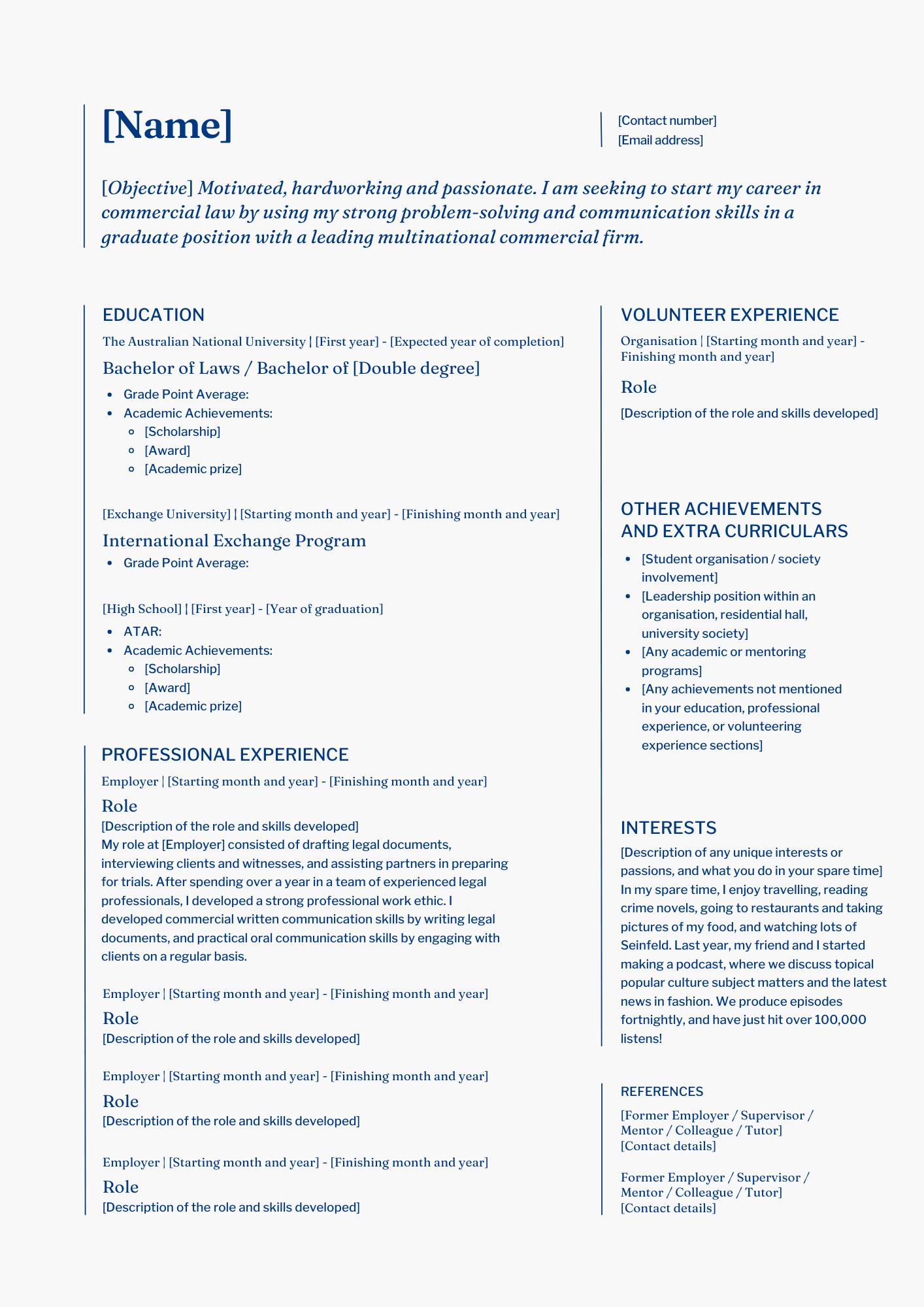
17
Example CV
Acing the interview
Congratulations! You have clearly made a positive impression with this organisation during the earlier application rounds. This potential employer has identified a number of positive qualities in you that suggest you would be a suitable addition to the organisation. The interview is your opportunity to reinforce those qualities and connect with the potential employer in person.
Research the firm:
Which areas of practice do they specialise in? Who are their major clients? Have they recently been involved in any matters that are of interest to you?
Relate to the firm:
Articulate what you see as the firm’s core values and ethos. Give a practical example of how you would demonstrate those values in practice.
Be personable and authentic:
Sample Questions: Personal
• Tell me about yourself
• What do you like to do in your free time?
• Do you want to undertake further education?
• What book are you reading at the moment?
• How would your peers describe you?
• What is your worst and your best quality?
• What value matters to you most?
• What quality do you think sets you apart from other applicants?
• When is it better to follow rather than to lead?
Practice:
As a client service-based industry, legal employers will be noting the way you present yourself and engage with others. Arrive at the interview on time, ensure your clothing is neat and professional, and maintain positive body language throughout. Run a couple of practice interviews with your friends and family to ease your nerves on interview day.
• Describe a time in which you were faced with a difficult situation.
• How did you overcome that situation?
• Tell me about a risk you have taken in your life.
• Tell me something that is not on your CV.
• Who is a role model in your life and why?
• If you could have lunch with anyone, dead or alive, who would you have it with, and what would you ask them?
• Where do you see yourself 5 years from now? 10?
• If you could have any job in the world, what would it be?

Sector-specific
• Why do you want to work in private practice / the courts / corporate advisory / government / international law and diplomacy / public interest law and social justice?
• What are you hoping to gain from working at this organisation / firm?
• Do you have a particular interest in this sector?
• What are some of the current issues in this sector?
• What do you see as the benefits and drawbacks of the changing legal environment?
Organisation-specific
• Why do you think you are a good fit for this organisation / firm?
• Why do you want to work for this organisation firm?
• What do you see as the biggest challenges facing organisations / firms like this?
Situational
• Describe a time where you demonstrated our organisation’s value of ___.
• Describe a time where you found an innovative solution to a difficult challenge
• Describe a time where you handled negative feedback.
• Describe a time where you demonstrated leadership.
• Describe a time where you had to respond to a group conflict.
• Describe how you deal with stress and high pressure situations
• Describe your proudest accomplishment.
• Describe a time where you set a goal, and how you came to achieve it.
Questions for the interviewer
• What was your pathway to this organisation?
• What do you enjoy about working here?
• Could you tell me about an interesting project or matter you have worked on during your time here?
• What does an average day working here entail?
• What would the responsibilities of this role entail?
• What does the training process for this role entail?
• How are the teams / practice groups structured at this organisation?
• In this role, would there be regular interaction between the clerk / graduate / intern / associate and the senior members of the organisation?
• Are there regular opportunities for feedback?
• Does this organisation offer opportunities for pro bono work, and how often would those opportunities arise?
• I welcome challenges and like to work hard, but how is work / life balance achieved at this organisation?

19
Requirements to practice law in Australia
Your academic qualification is only one of the steps required for admission to practice law in Australia. You will need to undertake Practical Legal Training (PLT) to obtain your Graduate Diploma of Legal Practice (GDLP). You will also need to meet the requirements of admission enforced in the specific state you are seeking to practice in.
What is PLT?
After finishing your law degree Australian graduates seeking admission to practice law must complete Practical Legal Training to obtain their GDLP.
PLT aims to provide graduates with the practical skills and knowledge required to complement a theoretical understanding of the law in legal workplaces. PLT will familiarise you with the day-to-day tasks of a practicing lawyer in various areas of law.
Although some states offer alternative training options which graduates can complete in lieu of a GDLP, the GDLP is accepted in every Australianstate and territory as a practical legal training qualification.
What does the course look like?
Although the course varies somewhat across institutions, the general requirements of the program are substantially the same. You will be required to complete a number of compulsory coursework subjects, elective subjects, as well as practical work experience / legal placement. The compulsory and elective subjects taken throughout the course will focus on skills, practice areas and values.
For the practical work experience portion of the course, a placement will typically be organised by the institution which you are completing the course through.
If you are completing an online course, you may be required to organise your own work experience.
The duration of the PLT course differs across institutions, and you can expect a full-time course to take anywhere from 15-24 weeks with approximately 25 hours of coursework each week. Part-time courses are also available to students who intend to study or work while completing the program, and take anywhere from 30-38 weeks with an expected 15 hours of course work per week.
When and where should i complete plt?
The Legal Profession Admissions Board requires that graduates complete PLT within 5 years of completing their degree. If this period is exceeded, graduates may be required to take a number of additional subjects before commencing their PLT.
Although ANU does not currently offer a PLT course ANU law graduates can obtain their GDLP from any of the following institutions through an in-person or online course:
• The College of Law
• Leo Cussen Centre for Law
• Bond University
• Queensland University of Technology
• The University of Adelaide
• University of Tasmania, Centre for Legal Studies
20
• University of Technology Sydney
• UNSW Practical Legal Training
It is important to note that if, following the completion of your degree, you are accepted into a graduate program, firms will often require you to undertake PLT at a particular institution of their choosing. Once you have completed your PLT, you may be admitted to practice law at the Supreme Court of the state or territory that you are seeking to practice in. The requirements for admission differ slightly in each state or territory.

Admission as a lawyer in the Australian Capital Territory: https://www.courts.act.gov.au/supreme/forms/ admission-as-a-legal-practitioner/importantinformation-for-admission-applicants
https://www.courts.act.gov.au/__data/assets/pdf_ file/0004/1429330/Quick-Guide-to-Admission-asat-11-August-2020.pdf
Admission as a lawyer in New South Wales: https://www.lpab.justice.nsw.gov.au/Pages/ admission-lawyer/admission-lawyer.aspx
Admission as a lawyer in Victoria: https://www.lawadmissions.vic.gov.au/
Admission as a lawyer in Queensland: https://www.qls.com.au/Legal-PractitionersAdmission-Board/Admission
Admission as a lawyer in Western Australia: https://www.lpbwa.org.au/Becoming-A-Lawyer
Admission as a lawyer in Tasmania: https://www.supremecourt.tas.gov.au/ practitioners/admission/
Admission as a lawyer in the Northern Territory:
https://supremecourt.nt.gov.au/ lawyers#Guidelines-on-Applying-for-Admissionas-a-Legal-Practitioner
21

Private practice
A career in private practice offers lawyers the opportunity to work across an array of diverse practice areas to participate in pro-bono matters, to undertake in-house secondments, or to travel overseas on an international transfer.
22

Here are some potential areas for legal practice:
• Commercial law
• Consumer and competition law
• Criminal law
• Environmental law
• Employment law
• Industrial law
• Family law
• Human Rights law
• Intellectual property law
• International law
• Litigation and dispute resolution (LDR)
• Public and admin law
• Banking and finance
• Mergers and acquisitions
• Superannuation and tax law
• Property law
The most common pathway to private practice is a clerkship. Clerkships allow the individual to get a taste for what a career in private practice will look like, while also gaining a foot-in-the-door to future employment at that firm.
The Private Practice section covers:
1. Clerkships:
• Clerkship Advice: An Inside Scoop by Japneet Kaur
• ANU Law Students’ Clerkship Experience by Will Tudehope and Joaquin Cross
• Matina Kouparitsas shares her journey from student to lawyer at MinterEllison by Matina Kouparitsas
• Tips From A Former Clerk by Joel Bourke
• Clerkship Tricks of the Trade by Isabel Gahan
2. Private Practice:
• The Long and Rewarding Road into Employment Law by Jennifer Wyborn
• Intellectual Property Law – A Career at the Intersection Between Innovation and the Law by Veg Tran
3. Corporate Advisory:
• Corporate Advisory: The Dynamic Practice of Navigating Contracts, Capital and Clients by Larissa Perkins
• My Pathway to Litigation by Ben Game
23
Clerkship tracker
** Note: these dates are a guide. The deadlines may differ depending on the firm you are applying for. **



Clerkship advice: An inside scoop
Studied: Bachelor of Laws (Honours) / Bachelor of Politics, Philosophy and Economics. What is your current role and specialisation?
I was a summer clerk at Ashurst in the 2023/2024 cohort and completed my clerkship rotations in the Projects & Energy Transition, and Dispute Resolution team.
What attracted you to a clerkship?
1. Exposure:
I was attracted not only to gaining exposure to corporate legal work, but the environment and culture of working full-time in a professional capacity. There have always been a multitude of movies and tv shows based around lawyers (A Few Good Men being a personal favourite), and while it is easy to say that they show a false image of a legal career, I never really knew what to replace that false image with. I wanted to complete a clerkship to get an insight into the truth about being a lawyer in Australia.
2. Knowledge
Every lawyer that I had ever talked to told me that what you learn at uni is going to be completely different to the knowledge that you need when practicing as a lawyer. If the knowledge that I needed in a legal career was going to be so different, I thought that a clerkship would be a great way to develop
that different knowledge. I would say that while the foundations of law, along with the terminology and legal skills you learn during your degree are important and useful, I was constantly learning something new about the law and the various processes/procedures that take place in the legal industry throughout the clerkship.
What are the skills required to do a clerkship?
1. Enthusiasm
As a clerk, you will be constantly learning something new – sometimes it will feel like everything is unfamiliar. I would advise you to give everything a shot! If you do feel lost, do ask someone for help but approach everything with an ‘it’s possible!’ attitude. You’ll get the most out of a clerkship if you’re willing to try new and challenging things.
2. Responsiveness to feedback
To make sure you get the most of your feedback, you should take every opportunity to improve your professional growth – the people around you want to help you grow. Whenever you complete a task, or try something new, ask people for feedback –what did they like about the way you completed a task? What could you have done a bit differently? If you’ve been asked to draft something, take initiative and look at the final copy sent out to the client to see what changes were made. When the people around you see that you’re interested in improving your work, they’ll also make a greater effort to provide
25
you that mentorship. It will also allow you to make sure that you are growing your legal skills and career.
What are the most rewarding and challenging aspects of doing a clerkship?
The greatest challenge for me was feeling like I was back at the beginning of my degree. Being surrounded everyday by intelligent and competent lawyers, it is easy to fall into imposter syndrome. But that led to the most rewarding aspect; those same lawyers are part of the mentorship a clerkship provides, and when you complete a new and unfamiliar task – when you draft an advice for the first time, complete research on a particular legal question, send an email – you develop far greater confidence in your own capacity to face the unknown and learn new skills. Being able to see myself completing tasks that were completely new provided me with a greater sense of confidence and achievement.
Japneet Kaur Summer Clerk 2023/24


26
ANU Law Students’ Clerkship experience
What was your pathway to a clerkship?
I think my pathway towards a clerkship is a relatable story. Like many students, I was unsure of what life after university looked like. My least favourite question at family Christmas was 'Will, what do you want to do?'
Having enjoyed law at university, I saw the clerkship as an exciting opportunity to try practicing the law. From this point, the pathway involved researching different firms, talking to friends and meeting firm representatives. In my fourth year, two partners from Allens visited Canberra for the clerkship evening. Both were very genuine, spoke highly about the firm and really admired their colleagues. From that point on, I think my pathway to want to clerk at Allens was set.
What are the skills required to do a clerkship?
I think it would be disingenuous to describe a rigid skillset required to be a clerk. Rather, I'd point to a number of common qualities important to having a good clerkship experience: Curiosity: naturally, when starting at a law firm most things will be very new to you. The best way to learn is to be curious about how it all works.
Enthusiasm: be enthusiastic and interested in the work. You’ll learn faster and enjoy the work more.
Balance: a fulltime clerkship is certainly an adjustment to university life. A balanced lifestyle is important to getting the most out of the experience.
Will Tudehope Allens Clerk, ANU Law Student

What attracted you to a clerkship?
The clerkship process offers a great balance between variety and specialisation. Between my clerkship and graduate rotations, I could experience up to four different teams before settling. It's hard to know what area of the law you want to dedicate your career to based on university alone, so that exposure is vital. When I eventually settle in a team, I want to find my niche and develop my practice, and Allens' expertise offers the opportunity to learn from the best.
Your fellow clerks are your future colleagues. As a clerk, you have the opportunity to build relationships with other like-minded people and learn to work with them in a team.
Joaquin Cross Allens Clerk, ANU Law Student

27
matina Kouparitsas shares her journey from student to lawyer at minterellison
What rotations have you done?
As part of both the graduate and clerkship programs, I have rotated through the Real Estate team, and Projects Infrastructure and Construction team. Both teams have helped me to grow my skills as a transactions lawyer, and have provided me with an interesting variety of tasks to grow my skills in different areas, as well as lots of client engagement! I have also found it really satisfying to see the physical manifestation of various projects I have worked on being built around Canberra.
What has been a highlight at work for you?
I had the opportunity to attend an offsite client meeting alone for one of the major projects I have been working on (since I was a clerk!). It was a good opportunity as it allowed me to build an in-person relationship with the client, and really made me feel like the team trusted me. It also allowed me to have the first cut of most of the work that arose out of that meeting. It was a great learning experience.
Matina Kouparitsas
2021 Vacation Clerk
2023 Full time in Graduate Program


28
Tips from a former clerk
What are the skills required to do a clerkship?
The skills required for a clerkship are ones you develop during your time as a uni student, with major ones being time management and general organisation. The clerkship will fly by, so it is important to keep track of what you have on and what is coming up.
There is no ‘holy grail’ skill that is mandatory for a prospective clerk. However, based on what I experienced in my clerkship and what I have seen in clerks since, the ability to put yourself out there and be open to new experiences is the best way to make the most of the opportunity. It is often the experiences you don’t plan for in a clerkship that are the most impactful.
What are the most rewarding and challenging aspects of a clerkship?
The most rewarding part of the clerkship is the exposure you get to the workings of a major law firm. Not only will you get to see some of the best lawyers in Australia go about their days, but you will also get to assist them with all different kinds of matters. There is no experience quite like it.
I think the hardest part of the clerkship is the mental battle you have with yourself in the first few days. It is intimidating coming into a new workplace and being given that first task. However, you just need to remember two simple things:
The clerkship is a learning experience. There are no billable targets or brutal deadlines. The process is designed to show you what it will be like to work as a lawyer at the firm. You are not expected to know everything. You will have colleagues who will assist you at any time if you have questions or concerns.
What advice would you give your university aged self?
Treat the clerkship process like another course. The application process is exhausting and time consuming. Make sure you prepare for it accordingly!
How do you see clerkships evolving in the future?
A lot of the major firms, including KWM, are starting to play around with the use of AI. I think clerks will play a huge role in the use of AI tools for legal work, as there will likely be opportunities for clerks to test or trial said tools. Rather than developing AI to replace the workforce, KWM is eager to see how it can be used to assist and enhance our legal work. It’s definitely an exciting time to enter the legal profession!
Joel Bourke
2021/22 Summer Clerk Current Solicitor


29
Clerkship Tricks of the trade
What are the most rewarding and challenging aspects of a clerkship?
For me, the most challenging aspect of doing a clerkship was coming to terms with my own imposter syndrome. The application process, offer day, the lead-up to and the clerkship itself was, at times, a daunting experience, and one which made me question whether I had what it took to make a valuable contribution to the firm. The silver lining of this challenge was the opportunity to share this daunting experience with other clerks, for whom working in a large commercial law firm was also a new experience. The connections I formed during the clerkship with my nowgraduate colleagues made my clerkship, graduate experience, and the beginning of my legal career most rewarding.
What advice would you give your university aged self?
I would encourage my university-aged self to maintain a balance between studies, selfcare and extra-curriculars. Although academic performance is important, I believe it is more valuable to consider your performance holistically, and to keep your relationship with yourself, your passions, and your connections with others in focus when pursuing your goals and making any self-assessments of one’s achievements.
ISabel Gahan HSF Graduate ANU Alumni 2022


30
Lessons from my clerkship at clayton utz
What attracted you to a clerkship?
I studied law because I thought it would be a useful tool for social justice campaigning - I didn’t think I wanted to be a lawyer and I wouldn’t have believed anyone who said I’d work in a commercial firm in my first years of law school. I had never worked in a legal practice before, but by my penultimate year I found I quite enjoyed law in its own right! I started looking for parttime legal work and discovered the clerkship program in the process.
Commercial law represented an exciting opportunity to be part of some locally and nationally significant matters and to work on a broad range of legal issues. After attending firm networking/information events, I also found the people were generally personable and downto-earth. While the firms had slightly different cultures, this was true across the board, and I thought a clerkship would be a good opportunity to learn quickly in a supportive environment. I ultimately chose Clayton Utz because the people were a blend of hardworking and down to earth. I was also attracted by the pro bono practice, and I’ve been able to work on modern slavery and consumer law matters pro bono throughout my grad rotations.
What are the skills required to do a clerkship?
There are lots of different skills you can bring to the role, but my top picks are:
• Curiosity and openness - being curious about your colleagues, the work that your team
does, the clients and practice area you’re in. Ask as many questions as you can - you will learn a lot about career options, law you didn’t know existed, and the inner workings of clients’ organisations. You can pick up a lot of legal trivia during your clerkship!
• Attention to detail - sometimes the juniors in a team are the only ones who have the time to look over drafts with a fine-tooth comb and to double check any assumptions made about the law or facts in issue. If you take the time to follow the chain of logic in a document from first principles until you are satisfied all the moving parts are accurate, it’s a great way to learn and a big help.
What advice would you give your university aged self?
Don’t worry about the subjects or opportunities you think will make you “more employable”. Take the electives, the volunteer roles, and the jobs you feel curious or passionate about. You’re more likely to do them well and the opportunities will unfold from there. Technical skills can be learned on the job, so you don’t need to commit to one pathway too quickly, and don’t be afraid to take time off to travel, pursue a passion project or just have a break - university is a great time to do those things. Additionally, try to build as much community as you can at law school and to find some mentors within the profession. I spent a lot of time at university feeling isolated because I believed the TV stereotype that lawyers were mostly really competitive! But actually, there will be lots of people around you that share
31
your values, that might be experiencing the same challenges you are, and who will be pleased to share your journey into practice with you. Similarly, there are lots of practitioners who are generous with their time, will take an interest in your development, and happy to help you out if you are brave enough to ask!
Robyn Lewis
2023 Graduate
I am in my second graduate rotation (firstly Public Sector Litigation and now the Workplace Relations, Employment and Safety team) at the Clayton Utz


32
The long and rewarding road into Employment law
What was your pathway into employment law?
A long and winding one! I started my career as a criminal lawyer, working with the Commonwealth DPP. I have also worked for the Australian Government Solicitor, as a judge's associate, in-house for the Department of Employment and Workplace Relations (as it then was) and in private practice for small and large firms. I am a big believer in trying as many things as you can until you find the right "fit".
What attracted you to practicing employment law?
I love employment law because it is about people and relationships. Most of us are employed in some way and it is often one of the most significant relationships in our lives. The subject matter is wide and varied and includes workplace discrimination, harassment, wage disputes, and employee rights. Being able to advocate for fairness and justice in the workplace is deeply rewarding and aligns with my personal values of equity and inclusivity.
What are the skills required to be a lawyer in employment law practice?
Jennifer strives to provide practical advice that allows her clients to rest assured they have complied with and understand their obligations.
Employment lawyers must possess strong analytical abilities to interpret complex legal issues and apply them to real-world scenarios. This involves dissecting statutes and case law, identifying relevant legal principles, and
crafting persuasive arguments.
Employment lawyers often confront intricate legal issues and contentious disputes. The ability to think critically and devise creative solutions is essential for navigating these challenges
What are the most rewarding aspects of working in employment law?
One of the most fulfilling aspects of working in employment law is the opportunity to advocate for justice and fairness in the workplace and the chance to address pressing social issues such as workplace discrimination and harassment. In addition to my billable work, I have a strong pro bono practice and I am passionate about ensuring access to justice.
Jennifer Wyborn
Partner at Clayton Utz specialising in employment, safety and industrial relations matters

33
Intellectual Property LAWa career at the intersection between innovation and the law
What is your current role and specialisation?
I am a Special Counsel in the Sydney Dispute Resolution team at King and Wood Mallesons. I have a mixed intellectual property and corporate litigation practice, with a focus on patent and commercial disputes, as well as class actions involving pharmaceutical products, cyber security /data breaches and the financial services industry.
What attracted you to practicing intellectual property law?
I am dual qualified with degrees in both Biotechnology and Law, and ironically, didn’t give IP law much thought for most of my time at university! It was only after I finished the honours year for my Biotechnology degree, that I started to think more seriously about what a career in law might look like.
I knew by that time that I didn’t want to devote my life to a career in research and development, but at the same time, didn’t have a deep passion to pursue a career in any particular area of law. I completed my honours in Biotechnology under the supervision of some of the most incredible scientists at the Garvan Institute of Medical Research – it was an invaluable experience because I got a chance to work in a ‘real’ research and development lab while gaining insight into how R&D feeds into the
commercial world. I started to see science as more than an academic endeavour; it is an industry that is driven by innovation but which requires enormous support from government and private funding.
Importantly, I also started to appreciate how the creation and protection of intellectual property is such a key element in driving innovation. With this appreciation also came the realisation that I am a science and tech ‘nerd’ at heart and will always be drawn to work that allows me to pursue that interest as well as the law.
What advice would you give your university aged self?
Life is not going to follow a linear path as you imagine, so don’t be reluctant to take risks. Be open to different opportunities and experiences and you will find that you will meet some of the most engaging and amazing people (truthfully, there may also be some less ‘amazing’ people you encounter along the way, but learn to be ok with that too).
I imagine the pressures on law students these days would not be dissimilar to my own experience at university – there is a strong focus on academic excellence and achieving what some would call ‘tangible’ measures of success (ie. great marks, while managing a portfolio of extra-curriculars, while having time for family and friends, while holding down a job so you can afford rent and to eat). No doubt, there will be times when it will be difficult to navigate between all these competing expectations.
34
A big difference I have noticed between my time at university and say, the experience I expect my children will have, is the support around building resilience and having a growth mind-set. I once read a Harvard Business Review article about adapting to change, and the importance of finding an ‘anchor’. Find ways to steady and stabilise yourself, to reflect on what has happened in your day (whether good or bad), and to recalibrate your moral compass. This message immediately resonated with me because what it means is that not only can we celebrate our successes, we are also allowed to acknowledge that sometimes our experiences are not great, and reflect on what would work for us.
How do you see intellectual property law practice evolving in the future?
The influx of AI and other digital tools is reshaping legal practice and challenging the boundaries of our intellectual property laws. Traditional concepts of authorship, inventorship and human creativity under our intellectual property laws are being tested, and it will be interesting to watch what impact emerging technologies will have, not only as a driver for yet further innovation, but also on how these technologies will lead to the evolution of our intellectual property laws.
Increasingly, AI, IoT and other tools that are being developed at the forefront of technology are being implemented ‘in-house’ in law firms to optimise practices, and to achieve improved efficiencies in tasks that have historically been time consuming or labour intensive. Firms are integrating into every day practice, tools to improve speed and accuracy for a range of tasks such as document review for discovery, contract review, prior art searching, patent
specification drafting and trade mark monitoring, as well as shifting to digital platforms that enhance accessibility to the firm’s IP teams and making the legal services more convenient and cost effective.
Veg Tran
Special Counsel at King and Wood Mallesons


35
Corporate advisory: The Dynamic practice of navigating contracts, capital and clients
What is your current role and specialisation?
I am a Senior Associate in McCullough Robertson’s Corporate Advisory team. While I specialise in advising on small to mid-cap regulated/public mergers and acquisitions (‘M&A’) and equity capital markets (often shortened to ‘ECM’) transactions in the Technology, Media and Telecommunications industry, I am fortunate to work across a range of different industries and a full spectrum of corporate law matters including unregulated/private M&A, private equity, and corporate advisory.
Across any one day, I may be involved in:
• a corporate merger, acquisition or disposal of either public or private companies which may involve undertaking due diligence, drafting and negotiating the transaction documents and facilitating completion of the transaction;
• structuring and facilitating execution of an initial public offering (‘IPO’), placement and rights issue and liaising with stakeholders (including regulators) to assist clients with raising capital;
• advising start-ups and emerging businesses, particularly around entity formation and structuring, governance arrangements and capital raising; and
• advising on compliance with the requirements of the Corporations Act 2001 (Cth), the ASX Listing Rules and good governance practices. The diversity of practice means I have the
opportunity to work with a broad range of clients, from start-up founders to executives of companies listed in Australia and globally, and other professional advisers. Safe to say, no two days are the same!
What are the skills required to be a corporate advisory Lawyer?
Since joining the profession, I have had the privilege to work with a number of leading corporate and commercial lawyers. Beyond having a sound legal foundation, from my experience, skills specific to excelling in the practice of corporate advisory include:
• being a creative and commercially minded problem solver to provide valuable solutions to complex legal issues;
• being attentive to detail – particularly, for example, in regulated M&A and ECM transactions where you are preparing disclosure documents which the public may rely upon, so it is crucial to ensure these documents are not inaccurate or otherwise misleading or deceptive; and
• being a team player as, for example, in M&A transactions you will often (at least in a full-service firm) be working with teams from different practice areas during the due diligence phase, as well as with other professional advisers.
36

What are the Most Rewarding and challenging Aspects of working in corporate advisory?
While a career as a corporate advisory lawyer can be challenging (some long hours, tight deadlines, complex legal issues), I have found it to be very rewarding in terms of personal and professional growth.
The practice of corporate advisory law offers an incredible opportunity to work with clients, across different industries and stages of the business lifecycle, and other professional advisers to navigate a range of complex business and legal issues and to contribute to strategic decisions, while managing diverse stakeholder expectations.
One of the most rewarding experiences as a corporate adviser is when a client successfully completes a M&A transaction or capital raising which you have diligently assisted with over often many weeks or months. It is a great moment to celebrate with all those involved as it marks a successful outcome for the client – and for an IPO, the listing often culminates with a
How Do you see corporate advisory evolving in the future?
Technology has already, and will continue, to challenge and influence the way in which law services are provided. Corporate transactions,
such as M&A and ECM deals, often involve the analysis of, and the preparation of, a large suite of documents, within tight timeframes. Therefore, the practice of corporate advisory will continue to benefit from the development of legal technologies that can streamline transaction processes and assist with preparing first drafts of documents, contract reviews, due diligences, remote signing and execution and project management. Aside from the way in which the practice of law is evolving, I also anticipate there will be greater demand to assist clients with environmental, social and governance (ESG) considerations as part of our advisory services. In short, corporate advisory is a dynamic area of law.
Laryssa Perkins
Senior Associate at McCullough Robertson Lawyers

37
My Pathway to Litigation
What is your current role and specialisation?
I work as an Associate in the Dispute Resolution team at Moulis Legal. My work focuses on commercial litigation and judicial review of government decisions. In my role I have had exposure to judicial review of government action in the international trade space, building and construction litigation, insolvency and statutory compensation claims. I also advise property developers and investors in commercial leasing and property matters. Some of my dayto-day duties include drafting correspondence, reviewing evidence and legal research. I am based in the Canberra office.
Prior to joining Moulis Legal, I worked in a small law practice in a solicitor advocate role, specialising in commercial and civil litigation. In this role, I appeared in a wide variety of courts and tribunals. I graduated from the ANU with a combined Arts (Chinese)/Law degree in 2016.
What attracted you to civil litigation?
I was drawn to the strategic and impactful nature of the work. Working in litigation involves advising clients in matters where there is considerable risk, both financially and otherwise. You see the results of your work, and are exposed to many aspects of proceedings and dispute resolution. Over time, you build a general awareness of legislation and common law in your chosen area, and gain experience advising and advocating effectively based on your knowledge of the law. Of course, the role can be demanding. You are often working under time pressure and there is a lot at stake for your client.
Litigation also offers exposure to many areas of law. At Moulis Legal, I work on disputes between entities across a range of industries and
government functions. Through my matters, I learn about areas of the law including commercial law, equity, property, insolvency law, construction law and judicial review.
What are the skills required to be a commercial litigation lawyer?
A lot of litigation work requires strong attention to detail. For example, you will often need to read high volumes of documents looking for important information, or to advise on regulatory compliance. You will develop areas of specialisation and conduct independent research.
Effective writing is also essential. For example, correspondence must be drafted in a way that progresses the resolution of the matter, and the drafting of pleadings involves careful consideration. If court documents such as pleadings and affidavits are not properly prepared, this can expose your client to liability or even impact their ability to run their case. Strategic thinking is also important both in court proceedings and in dispute resolution outside of court. Often there is more than one way of obtaining what your client wants, or the court proceedings are just one aspect of a broader dispute. Advising effectively on settlement requires a detailed understanding of what the client is trying to achieve.
Ben Game Associate at Moulis Legal

38

The courts, the bar and advocacy
A career as an associate, tipstaff, judicial registrar, barrister, or prosecutor offers graduates a front-row seat to the law in action. These pathways provide a real sense of participation in the advocacy process, achieving just outcomes to legal disputes.
39

in the courts:
• Many law graduates will pursue a role as an associate or tipstaff in a state or territory court, the Federal Court, or the High Court. associates and tipstaff work directly with judges. Their specific duties vary depending on the jurisdiction of the court. In large part, however, they will engage in legal research, drafting, and general administrative tasks.
• These opportunities provide immense insight into judicial reasoning, the process of dispute resolution, the inner workings of the courts, and the relationship between judges, associates, solicitors, and barristers. For graduates wishing to explore a career as a barrister in particular, the exposure, experience, and network gained from associateships is invaluable.
At the Bar:
• Many who pursue a career at the Bar are drawn to it by the intellectual stimulation and thrill of judicial advocacy it provides.
• There are a number of pathways to the Bar. Some graduates will go straight to the Bar from university. Others will gain career experience working as solicitors, associates, or tipstaff beforehand.
The Courts, Bar and Advocacy section covers:
1. Judiciary:
• Insights, Opportunity, and Incredible Timing as a High Court Associate by Natalie Seeto
• A Life in Law: From ANU Law School to Supreme Court Judge by Justice James Stevensons
• A spotlight on Gregor Urbas: ACT Special Magistrate by Special Magistrate Gregor Urbas
2. The Bar:
• A different and rewarding pathway after completing a law degree by Anca Costin
• Never Boring – Life at the Bar by Juliet Behrens
• Unusual Pathways by Tim Crispin
3. In House
• ‘From never to in-house: don’t knock it till you’ve tried it’ by Alice Wang
40

Pre-penultimate students should keep their eyes peeled for opportunities to work within the Courts, the ACT or Federal Office of Public Prosecutions, or a Barrister’s Chambers.
Useful Resources:
ACT Supreme Court Associateship
https://www.courts.act.gov.au/supreme/about-the-courts/corporate-information/ employment-as-an-associate-in-the-act-supreme-court
NSW Supreme Court Associateship
https://www.supremecourt.justice.nsw.gov.au/Pages/sco2_aboutus/sco2_careers.aspx
Federal Court Associateship
https://www.fedcourt.gov.au/about/employment/associates
High Court Associateship
https://www.hcourt.gov.au/employment/applying-for-an-associateship-with-a-justice-of-thehigh-court-of-australia
ACT Office of the Director of Public Prosecution
https://www.dpp.act.gov.au/employment/employment_opportunities_at_act_dpp
41
Insights, opportunity and Incredible timing as a high court associate
What is your current role and specialisation?
I am an Associate to the Hon Justice Beech-Jones in the High Court of Australia. I initially started as a Tipstaff at the Supreme Court of NSW in 2023 when his Honour was then the Chief Judge at Common Law and a Judge of Appeal. In NSW, a Judge’s Associate is typically responsible for legal secretarial work whereas a Judge’s Tipstaff (a historical term unique to NSW) assists with legal research, proofreading and in-court duties. Following his Honour’s appointment to the High Court in November 2023, I was fortunate enough to commence a new role as his Honour’s Associate. What was meant to be a one-year job turned out to be an incredible 18-month opportunity across both Courts!
My time as a Tipstaff and Associate have been very different experiences, both in form and substance, but in the most exciting and rewarding way possible. At the Supreme Court of NSW, I worked on various matters including bails, sentencing, civil procedure and appeals to the NSW Court of Appeal and (primarily) the NSW Court of Criminal Appeal. At the High Court, I assist in matters raising issues and questions of law across Migration Law, Constitutional Law, Administrative Law, Criminal Law, and Consumer Law. Both roles involve researching cases and legislative provisions, summarising judgments and submissions, assisting in proofreading, publishing judgments, and providing general assistance to his Honour.
What are the skills required to be a commercial litigation lawyer?
I was a Research Assistant for the National Judicial College of Australia where I oversaw the Commonwealth Sentencing Database, a resource that provides case summaries and commentary on federal sentencing principles. I also had shortterm jobs as a Vacation Clerk at Herbert Smith Freehills, researcher for Legal Aid ACT, and casual sessional academic for a ‘Government DecisionMaking’ course. Prior to this, I spent a few years working in customer service, which taught me a great deal about clear communication, liaising with others and problem-solving. I also gained a range of volunteer legal experiences throughout university, including at Legal Aid ACT, Redfern Legal Centre, and as a student editor of the Federal Law Review and Australian Yearbook of International Law. Lastly, I completed an internship at the ACT Magistrates Court and a clinical placement at Canberra Community Law, both of which were organised (and credited as electives) by the College of Law.
What are the skills required to do an associateship?
• Close interpersonal skills: Although you will liaise with other chambers, Registry and other court staff, working for a Judge typically involves working in a close-knit team of three to four people. You need to be able to work collaboratively, both with and under people,
42
and communicate clearly.
• Written and research skills: A strong understanding of the law and attention to detail are highly valued by Judges as they rely on you to conduct research, ensure their writing is coherent and assist them both in and out of court. This can not only be demonstrated in marks but also any job involving legal research, drafting and, in particular, proofreading (such as being an editor for a law journal or equivalent).
• Discretion: It is very important to appreciate from the outset that as a Tipstaff/Associate you are privy to very sensitive information and conversations that other members of the legal profession are not.
• Organisational skills: Being able to manage deadlines and tasks calmly and efficiently will serve you well not only as an Associate/ Tipstaff but in the legal profession more generally. Promptness and preparation are particularly important in this role as it facilitates the Court’s administration of justice.
What are the most rewarding and challenging parts of doing an associateship?
The most rewarding aspect of being an Associate/Tipstaff is having the opportunity to work closely with, and learn from, skilled Judges at the top of the profession and, more broadly, seeing how the law is enlivened, advocated, and administered in courts. Appreciating how court systems operate, judgment production processes, and a range of advocacy styles (and quality) is an invaluable start to a legal career. The more challenging aspects for me have been being comfortable with the often fastpaced nature of the work and, on a more personal level, overcoming feelings of imposter syndrome. Learning and applying the law at
university was also quite different to seeing it in practice. Working amongst such a high calibre of legal minds in Judges and colleagues has been challenging, but equally motivates me to bring my best self to work.
Natalie Seeto
Associate to the Hon Justice Beech-Jones in the High Court of Australia


43
A life in law: From ANU Law School to supreme court judge
I am in my 13th year as a Judge of the Supreme Court of New South Wales. I am one of the two permanent judges in the Commercial and Technology & Construction List, within the Equity Division. I am also the Adoptions List Judge.
I graduated from the ANU Law School (as we then called it) in 1972 and, following completion of the Legal Workshop, became the Associate to the Rt Hon Sir Cyril Walsh, a Justice of the High Court of Australia. It was there, I think, that my earliest interest in advocacy in the courtroom took root.
I was then employed in the litigation sections of two large Sydney law firms and later became a partner at a third law firm in 1980. During that period, as “litigation partner”, I became increasingly interested in going to the Bar and was persuaded to do so during 1988. I came to the Bar in early 1989. Although, of course, I took each day at the Bar as it came, my long-term aspirations were to one day take Silk and, perhaps, be appointed to a superior court. Those matters came to pass in 2003 and 2012. I enjoyed every moment of my time at the Bar but have enjoyed working at the Court even more. I would say that the biggest difference between life at the Bar and work at the Court is the amount of writing at the Court. It is a constant, relentless, demand. There is also, obviously, the need to decide what is the correct, or at least the preferable, answer to the problems at hand, rather than devising the best arguments for one side or the other. I say “correct” or “preferable” answer because, I have found, there are many cases where there is no unarguably single correct answer. I see the ability to write judgments
in a reasonably speedy manner and to be decisive in the sense I have described to be the requisite skills for judicial life.
The most rewarding and challenging aspects of life as a Supreme Court Judge is understanding and putting in a proper perspective complex legal and factual problems, and providing an answer to the parties who cannot themselves resolve what divides them. I have also found working as the Adoptions List Judge to be a surprisingly heartwarming aspect of the job, and one for which I find I need very different skills than when managing commercial and building disputes.
I have been asked what advice I would give my university-aged self. The best advice I could give, I think, is that a career in the law is challenging but rewarding, and well worth the hard work that doubtlessly will be required.
There are challenges ahead for all courts. One arises from the increasing complexity of disputes which, in turn, arises from, amongst other things, the digitalisation of our economy. Another is the provision of adequate funding (and I don’t mean judicial salaries), especially to the under resourced lower courts where the bulk of the work that actually affects peoples’ daily lives is carried out.
Justice James Stevensons Supreme Court of NSW

44
A spotlight on gregor Urbas: ACT Special Magistrate
What is your current role and specialisation?
My role as a Special Magistrate commenced in January 2023 with my appointment by the ACT Attorney-General. The duties are the same as those of a full-time Magistrate, but on an “on call” basis, meaning that there are some days where I am not required to sit. However, I am in court nearly every working day, mostly conducting criminal hearings and applications for protection orders, with some bail and sentencing decisions also involved.
What attracted you to the ACT Magistrates courts?
I have always been interested in courts and have visited many in other jurisdictions including overseas. My advice to law students I have taught over many years has also been to visit courts, where you will learn something new each time, and often find the facts and personalities involved quite entertaining. Entry is free, and if you want to be a lawyer after you graduate, what better learning experience is there than watching actual lawyers making submissions, questioning witnesses, and interacting in and around courts? Other roles include judicial officers, associates, and court security staff. Associates are most often later-year or recently graduated law students, and the quality of the ACT Magistrates Court associates is a welcome source of help to me in court and in chambers writing decisions.
What are the skills required to be a special magistrate?
Magistrates are generally required to be lawyers of at least 5 years standing. Most come from a previous practice background as prosecutors, defence lawyers or other practitioners. Some, like Dr Anthony Hopkins, who is also a Special Magistrate and sits in the Galambany Court for Indigenous offenders as well as the Drug and alcohol Sentencing List in the Supreme Court, and I, have a more academic background. We have both specialised in Criminal Law and Evidence, including teaching at the ANU. Although I am admitted as a Barrister, my work in that capacity is more limited than the two decades of work as a full-time academic.
What are the most rewarding and challenging parts of being a magistrate?
The most rewarding aspect of judicial work is making considered decisions that apply the law, which is often complex and requiring interpretation, to the facts of each case to arrive at a just outcome. The constant challenge is to do so in a practical timeframe, noting that most hearings last only for a few hours or a day, and many of the lists for bail or sentence have dozens of files. Another challenge is that people coming before the courts are often highly emotional, or have drug, alcohol, or mental health issues that make communication difficult. In some cases, witness intermediaries or interpreters are used to assist.
45
What are some challenges currently facing the courts?
The complexity of laws that are often amended, sometimes with unintended consequences is a constant challenge, and Magistrates often find themselves having to work out how legislation is to be applied, including in relation to new technologies. An example is deciding whether the person in a self-driving car is a driver for the purposes of a traffic offence. Another area I have been deeply involved in as a legal researcher is cybercrime, which poses challenges by way of jurisdiction, evidence, and new ways of committing crimes, such as non-consensual distribution of intimate images, and live-streamed or virtual child abuse material. In this context, courts are having to work out ways of dealing with the rapid adoption of artificial intelligence tools that both facilitate offending and will likely change the way that courts operate.
Dr Gregor Urbas
Adjunct Associate Professor of Law (ANU)
Special Magistrate (ACT Magistrates Court)
Email: Gregor.Urbas@anu.edu.au


46
A different and rewarding pathway after completing a law degree
What is your current role and specialisation?
What was your pathway towards the bar?
I am a barrister at the ACT Bar and part of Blackburn Chambers, the first set of barrister chambers in Canberra. I was called to the Bar in 2019 after passing the NSW Bar Exam and completing the required Bar course. I mainly specialise in administrative, employment and commercial law. Prior to joining the Bar, I worked at the ACT Human Rights Commission and after that, I was a solicitor with two local firms in Canberra. This pathway is common amongst barristers as most of us were lawyers prior to being called to the Bar.
What attracted you to the bar?
From a very young age I enjoyed learning, expressing ideas and being vocal about things I believed in. I was the kind of child that parents always thought would become a lawyer. Therefore, being a litigation lawyer and then going to the Bar appeared to me as the perfect fit. I still think it is! Besides that, the part that also attracted me to the Bar was the flexibility it offers and the opportunity to work with different lawyers on different matters at the same time. The work at the Bar is challenging most of the time and no two days are the same. Joining the Bar was the best decision for my legal career so far.
What are the skills required to be a barrister?
Unlike most other jobs, practising as a barrister presents challenges that inevitably occur given the complexity that many cases present. However, that is part of the excitement that comes with the role. Further, when attending Court, there is always some unknown element that may arise when presenting a case in Court as one never knows for sure what lies ahead notwithstanding the preparation done in that case. This thrill becomes addictive or, at least, it has become for me, even when there are times it is terrifying as you might not have the best case.
What are the most rewarding and challenging aspects of working in the bar?
One of the best things for me is that at the Bar, the learning never stops. There is always something to be learned from a matter, even if it is not law related, or from conducting research in relation to a matter. Being a barrister keeps your mind working all the time and you can come up with the best solutions for a case when you least expect to. The most rewarding aspect of being a barrister is knowing that your work and contribution in a case may make a difference to someone’s life or may set a legal precedent. I also enjoy the fact that at the Bar, there are times when you have to be on your own, drafting submissions or preparing a case for a hearing, but also have regular interactions with the solicitors briefing you, working as a team and
47
appearing at hearings which, most of them, are public.
The most challenging part is to accept that you cannot always control the flow of your work, and have to work late nights or weekends, sometimes having to sacrifice the time otherwise spent with family or friends. Also, at times, it is hard to accept that despite all the hard work put in a matter, the outcome is not the desired, nor the expected one. Many of us ponder for a long time about decisions that were not favourable to our clients.
What advice would you give your university aged self?
The advice I would give myself as a university student is to do the work that is required of me and don’t cut corners thinking that no one will noticethere is no substitute for doing the work. If I do all that, I must trust that everything will work out in the end.
Anca Costin ACT Bar, Blackburn Chambers


48
Never boring - life at the bar
I work as a barrister at the private bar- based at Burley Griffin Chambers, which is one of the three main sets of Chambers in Canberra. I practise almost exclusively in family law. Prior to being “called to the Bar” I was a solicitor for 9 years and before that had a 20-year career as a legal academic at the ANU. The years at ANU were wonderful and had a profound impact on me - most particularly the academic staff who I worked with and who mentored me, including Professors Phillipa Weeks (who tragically died in her 50s), Stephen Parker, Jim Davis, Don Greig, Phillip Toyne and many more.
Most people sensibly delay going to the Bar until they have had some experience as a solicitor, have established professional relationships and have some financial security - perhaps in their mid to late 30s or 40s. I came to the Bar particularly late - at 51. I was attracted to the autonomy which the Bar offered - employed by no-one and employing no-one. It was a good time to take a new career path. Our children had finished school, and I was able to focus on the very demanding work involved in preparing myself and establishing my practise. I did have the horrific experience of having to sit exams again (to get an ACT Barristers Practising Certificate you have to pass the NSW Bar Exams and Bar course or already have such a Certificate in another jurisdiction). I felt new sympathy for my students at having to sit those horrible exams I used to set and I was reminded how exams are a poor test of what you have learned and can do!
Barristers’ practises differ. For myself, I am not in Court every day. At the same time I qualified as
a barrister I also did my mediation accreditation. About 25% of my work now involves mediating - I really enjoy helping people see if they can reach agreement and avoid a judge having to make a decision for them. I do quite a lot of advice work and probably my favourite kind of work day is one where I am in Chambers doing a written advice. The biggest highs and lows though are in Court. Some Court work is fairly straightforward, but final hearings rarely are. Inevitably they involve a huge amount of pressure and stress. It does get easier over time, but I still feel keenly the responsibility and privilege of being trusted as the head of a team representing a client in their property or parenting dispute (particularly their parenting dispute).
If you are able to develop a successful practise the work becomes financially rewarding - but you have to have some resources behind you to start with and you have to manage your own small business to make it so. You find collegiality in your relationships with solicitors and other barristers, but in the end the responsibility for your work is yours and yours alone. There is a significant unpredictability to the work which you just have to live with. You might have four final hearings booked in a month and all of them are likely to settle - some relatively early on, some at the door of the Court, and some after a party has been cross examined and can see the writing on the wall! You can spend three days preparing for a trial, which settles before the first mention on the day of the trial. It can be frustrating that so much of the work you do doesn’t end up being needed, but you can be sure if you don’t spend three days preparing, the matter won’t settle!
49
It is a brave barrister who turns down a hearing because they have too much work that month; the other matters are likely to settle and then you don’t have enough work. That makes managing your workload very difficult - and the idea that you will turn down work to make everything less stressful becomes just a fantasy.
Despite the ups and downs, I have never regretted my move to the Bar. I’m very happy to chat with anyone who would like to know more.
Juliet Behrens Private Bar, Burley Griffin Chambers


Unusual Pathways
I am a barrister with chambers in both Canberra and Sydney. I began my career as a criminal law and family law barrister. Over time, the instructors who regularly briefed me shifted the focus of their practices but wished to continue retaining me. Now I primarily do equity and estate litigation, though my practice also includes defamation, historical abuse compensation and commercial disputes.
I have practiced as a barrister for the last seventeen years. My career path was an unusual one. After graduation, I worked for twelve months as an associate to a justice of the ACT Supreme Court. This was an extraordinary learning opportunity for a young lawyer whose interests were focused on advocacy. When my term as associate expired, I went to the Bar. Becoming a barrister without first becoming a solicitor was a fraught exercise. Others warned me that I was crazy to do so. They weren’t wrong. With few contacts and no experience, my first years as a barrister were extraordinarily stressful and financially difficult. It took a heavy toll on my family and I. It is not an experience I recommend to others. If I could go back in time, I would have charted a different course and become a litigation solicitor for several years. From there I would have built my experience and my contacts before coming to the Bar.
There are ways of pursuing a love of advocacy without taking such risks. Many solicitors, especially in smaller firms, do much of their own court work. Counsel might only be briefed for major trials or particularly important applications. It is common for solicitors to
conduct their own hearings before tribunals and magistrates. All of these are opportunities to refine your skills and learn the lessons that only courtroom experience can teach you.
Any litigation career will involve failure. Most cases which proceed to trial are brought by two sets of capable, experienced lawyers, who both believe in the justice of their client’s cause. At least one of those sets of lawyers is wrong. Sometimes they both are. If both sides are skilfully represented, the underlying merits of the case will emerge and decide the outcome most of the time. Only in a small percentage of cases will clever tactical decisions win the day. Try as we might, one cannot eliminate unsuccessful cases from a litigation practice. That is a good thing. We learn far more from failure than success. A lawyer who has never lost a case has never run one that was challenging and will never know the satisfaction of a hard-won victory.
The Bar is changing in response to advances in technology and the arrival of working from home. Newly called barristers often get their start with briefs referred to them from overstretched chambers colleagues. They also gain critically important advice in chambers. Most senior barristers are more than happy to assist a junior who knocks on their door looking for guidance. During the pandemic, many midcareer barristers realised that meeting with clients and even some appearance work could be conducted by video. A barrister’s chambers began to seem like a luxury. Particularly in Sydney, many chambers either contracted or closed. New barristers will need to be creative to find more sources of beginner work. They
51

will also need to cultivate broader networks of potential mentors, beyond the confines of an old-school chamber. The path to a career in advocacy may no longer be straightforward, but it remains open to those with the courage and creativity to walk it.
Tim Crispin Barrister

52
From Never in house: Don’t Knock it till you’ve tried it
What is your current role and specialisation?
I am an in-house lawyer at a superannuation fund, in the commercial and investments law team. Our focus is on advising the organisation on all commercial and contracting matters, ranging from contract review to ad hoc commercial and investment advices. Being inhouse, I would call myself more of a generalist than a specialist as we handle all types of contracts in house rather than briefing out to external law firms.
what was your pathway to ‘in-house’?
I finished my undergraduate studies at ANU in the midst of the pandemic years – 2020 – having made a decision that I wouldn’t go into the legal field or ever become a lawyer. I took a role as part of my current organisation’s generalist grad program and rotated through a number of very different teams. After 5 teams and 14 months I found that the place that I would fit best was the General Counsel team. I was lucky that the business supported me during my PLT, providing financial aid and additional study leave.
My pathway towards “in house” really didn’t take much time at all once I had worked out it was what I had wanted as I was already well acquainted with the organisation and the General Counsel team. The actual timeconsuming part was coming to the realisation and decision that I wanted to become a lawyer.
The most rewarding aspect and the most challenging aspects of working in-house are really the same thing. In-house lawyers are the go-to within an organisation for all legal questions regardless of the area of law. This could be anything from a general procurement of office stationery to the leasing of an office building, from advice regarding a new software or tech platform contract to advice relating to an investment decision.
You never know what kind of questions or advice requests you’ll receive each day which can be challenging as every day carries some uncertainty. But it’s also rewarding since you’ll constantly be learning and upskilling.
What are the most rewarding and challenging aspects of working as an in house lawyer? What advice would you give your university aged self?
I would tell my university self to not be so set on deciding that being a lawyer wasn’t for me without having a good understanding of what it was like being a lawyer in a variety of different areas, that studying law is very different to practicing law. I was in such a hurry to declare what I will and won’t do for the rest of my career. You’re only at the start of your journey so its ok if you can’t see every single thing on the path.
Take the time to work out what you really want to do, what you’re good at, and what you enjoy. Even if these things aren’t things that’ll go on your resume, you’ll learn things about yourself in the process.
53
And actually apply for some legal internships and experience what it’s like to work as a lawyer in the real world and not just read about the law from a textbook. There are things that you’ll learn once you start working that you could’ve had some exposure to doing internships in uni.
Alice Wang
In-House Lawyer at the Commonwealth Superannuation Association


54

Here at the ANU, there are an abundance of opportunities in the public law space on our doorstep.
The Public Service
55

Useful Resources:
ACT Office of the Director of Public Prosecution
https://www.dpp.act.gov.au/employment/ employment_opportunities_at_act_dpp
Attorney-General’s Department
https://www.ag.gov.au/about-us/careers
Australian Government Solicitor
https://www.ags.gov.au/employment/currentvacancies
Commonwealth Ombudsman
https://www.ombudsman.gov.au/what-we-do/ careers/current-vacancies
Department of Foreign Affairs and Trade
The pathways in public law are extremely diverse. Public servants may begin their career in a graduate program at the Attorney-General’s Department, transition to the Australian Government Solicitor, and settle in the Treasury in its law division. Diplomats may begin their career at the Department of Foreign Affairs and Trade, before travelling to work in an international embassy, a consulate, or for the United Nations. There is no single avenue, rather a number of flexible pathways with a great deal of fluidity and choice.
The Public Service section covers: ANU students are known for their keen interest in politics, foreign affairs, and social justice. Public law offers the perfect opportunity to utilise those interests in tandem with the skills developed through law school.
• My Journey to the Public Service by Hannah Coffey
• My Pathway to Public Law by Karen Nelapati
• My APS Journey as a Government Lawyer by Terence Loko
• The Journey Towards International Law by John Ridgeway
https://www.dfat.gov.au/careers/careers
Department of Infrastructure, Transport, Regional Development, Communication and the Arts
https://www.infrastructure.gov.au/department/ careers
Department of Industry, Science and Resources
https://www.industry.gov.au/about-us/work-withus Treasury
https://treasury.gov.au/the-department/ recruitment-and-careers
The United Nations
https://un.org.au/careers/ https://unjobs.org/duty_stations/australia
US Embassy and Consulates
https://au.usembassy.gov/embassy-consulates/ jobs/
56
My journey to the public service
What is your current role and specialisation?
I work as a Research Associate at the Australian Law Reform Commission (ALRC). The ALRC is the federal law reform body in Australia. The ALRC undertakes research and provides recommendations for reform on topics identified by the Attorney-General. As a Research Associate, my tasks include research, contributing to reports and papers, supporting consultations, collecting and analysing data, and coding. Since commencing in April 2023, I have worked on the Financial Services Inquiry, the Anti-Discrimination and Religious Educational Institution Inquiry and, most recently, the Justice Responses to Sexual Violence Inquiry.
What was your pathway towards the public sector?
My first degree was a Bachelor of International Relations. International Politics had been a favourite subject in VCE, and I was drawn to the idea of contributing to systemic change. I gained a lot from my first degree, but towards its conclusion became interested in how to impact change at a more local level. This led to some years of travelling, volunteering and then ultimately pursuing a Juris Doctorate. During the JD, I was interested in several areas of law and found it difficult to decide on a favourite area of practice. I sought out a variety of internships to gain a better understanding of practice in different areas and completed internships at the Law and Advocacy Centre for Women, the RMIT Business and Human Rights Centre, volunteered as a paralegal at Anika Legal (a rental support service), and
spent time visiting the courts.
A common thread in these experiences was the need for the law to be modernised, simplified, and more accessible. I also benefitted from learning about law reform through both my degrees and began to develop a strong interest in the topic. This led to me submitting an expression of interest to the ALRC and I was lucky enough to be brought on as a Research Associate.
What are the most rewarding and challenging aspects of working in the public sector?
Some of the most challenging aspects of my work are also the most rewarding. Our inquiries focus on different issues and practice areas, meaning our work is incredibly varied and requires us to become familiar with substantial amounts of new material quickly. A positive aspect of this is that our work is dynamic, and I feel like I’m continuously learning. As we’re a small organisation there’s a lot of opportunity to be hands on, to work on a wide range of tasks, to take on responsibility, and to work in innovative ways such as learning to code.
The most rewarding aspect of my job is getting to work with kind, clever, passionate people with a similar interest in bettering the law. I feel very lucky in that respect.
What advice would you give your university aged self?
Take your time. Don’t feel like you need to rush through your degree. Enjoy the process, find a balance that allows you to have space from study to
57
relax, have fun, pursue other interests, and travel etc. Seek out and take opportunities that come your way. Use internships, volunteering, mooting etc. to gauge and tailor your interest in different practice areas. Don’t be afraid to reach out and engage with your lecturers and people whose careers you find interesting – utilise their experience, feedback and mentorship. Look after and back yourself. Law degrees can feel competitive, and it can be easy to get lost in the chaos or feel like you’re falling behind. Remember that everyone is on their own timeline, follow your gut and make decisions that align with your interests and values.
Hannah Coffey Research Associate, Australian Law Reform Commission


58
My pathway to public law
What is your current role and specialisation?
I am a Legal Officer at the Department of Climate Change, Energy, the Environment and Water (DCCEEW). I work in the Dispute Resolution team of the Legal Division.
What attracted you to the public sector?
At the start of my degree, I didn’t have much insight into what the public service was like, so I didn’t really think of it as a career option. I thought the only pathway was graduate from law school, end up at a top tier firm and then work my way up the ranks to partner, maybe if I was drawn to advocacy, I would consider the Bar. Little did I know how diverse and varied legal careers can be!
After an exciting, but at times, exhausting, graduate and first year as a legal practitioner, I wanted to explore a field related to both my degrees, Law and Science. I have always had a passion for environmental law. My current role allows me to combine these degrees and passions in a department responsible for leading Australia’s response to climate change. My practice includes litigation, employment law and compliance matters and I am loving the varied work and
What are the skills required to be a lawyer in the public service?
I think an inherently important skill as a lawyer is being a good communicator. In the public service, this skill is essentially the skill of translation; being able to translate legal
jargon from the complexities of judgments or legislation into clear and succinct advice for client areas. This comes down to identifying key issues and bottom-line impacts for policy, funding, and legal risk.
What are the most challenging and rewarding aspects of working in the public sector?
Being in-house allows you to have a better insight into the needs and priorities of your clients, as you are privy to government agendas and policies that the department is working toward achieving. You get to build great relationships and become a trusted advisor to your client areas. This rapport is important, particularly when pointing out options that may carry legal risk. Providing ‘frank and fearless’ advice is a primary tenant of being a government lawyer and takes bravery and tenacity.
What advice would you give your university aged self?
Get involved, get out there and soak it all up. You are at one of the greatest universities in the world, with some brilliant professors who have themselves practiced in the field. I was even lucky enough to be taught by a former High Court justice! Uni is about so much more than doing your readings and watching your lectures, although, please do those as well!
There are great opportunities to get involved in social justice causes you care about, join clubs and engage in extra-curricular activities. These build you up to be a well-rounded lawyer and a well-rounded human.
59
How do you see public sector/public law evolving in the future?
The public sector will also have to adapt to wider societal change, with greater digitalisation and automation of parts of the sector. Change is inevitable as technology continues to develop, the public sector must engage with and embrace change. With this change, comes a need to provide some regulation and safety mechanisms, promoting transparency and accountability where technology is used in decision-making or governance.
The public sector also must rise to keep pace with the private sector to attract and retain great lawyers. This will require innovating to create supportive networks for public service lawyers. For the past 6 months, I’ve had the opportunity to be the co-chair of the Australian Government Legal Services Engagement and Communications Committee (AGLS ECC)
The AGLS ECC’s purpose is to engage and connect government lawyers across Australia, supporting AGLS’ vision of enabling government lawyers to provide consistent, high quality legal services and increasing collaboration amongst the public service legal community. Services and initiatives such as the AGLS ECC will be key to retaining great talent in the public sector.
Karen Nelapati
Department of Cimate Change, Energy, the Environment and Water (DCCEEW)


60
My APS journey as a government lawyer
I had always wanted to work in the Australian Public Service (APS) even before I started my law degree. The idea of helping the broader community really appealed to me. While at university, I studied both constitutional and administrative law and ended up enjoying them so much that I studied two further public law electives. I was fortunate enough to undertake my practical legal training at the Australian Taxation Office, before commencing a graduate policy role and then moving into government law. I am currently a senior lawyer in the APS, where I provide high-level legal advice and support to the Commonwealth. I specialise mainly in administrative, employment, and general government law.
The biggest advice for getting into the APS as a university student, and particularly in government law, is to apply widely and early for roles. The APS is a very big place and there is so much opportunity to get in before later moving on depending on your interests. The second tip is to not take rejection to heart when you are applying. APS position vacancies can attract up to thousands of applicants and you won’t always get in on your first attempt. Keep trying, learn from the feedback provided, and document every success and loss.
In terms of skills you would be expected to have once you are in, I would say the biggest ones are patience and resilience. Things won’t always happen as planned in any environment, particularly in government, where there are
many moving parts. This may mean, for example, that while providing internal legal advice, you find out you need to consult with another agency when you didn’t originally anticipate you would need to. Or where you a managing what seemed to be a minor litigation matter that later morphs into a large complex Commonwealth-wide dispute that you now must coordinate with other agencies on. All these extra tasks will add additional time and effort that need to be invested carefully. The best thing to do is to acknowledge challenges as they arise, remain flexible and adaptable in your approaches to them, and always draw on the experience of senior colleagues.
One of the more interesting pieces of work I undertook in the APS was legislative development. This involved coordinating with various government agencies and liaising with the Office of Parliamentary Counsel on legislative drafting. I also prepared explanatory statements and statements of compatibility with human rights –the types of documents that helped me understand legislation at university. These experiences were rewarding for me because they gave me a greater appreciation for the hard work that goes into translating government policy into law.
Terence Loko
Senior Lawyer in the APS
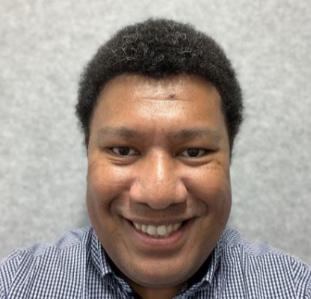
61
The journey towards international law
What is your current role and specialisation?
I am head of legal services for Pacific Legal Network. We have offices and affiliates in 21 locations across 16 countries between Hawaii and Singapore. Almost all our firms are owned and operated by indigenous Pacific islanders –our proudest achievement. ‘PLN’ is the only legal service provider with an office in more than one Pacific Island.
What was your pathway towards international law?
I would not say that I came about working in international law as an accident, but what I now do is not something that I had originally planned. I am grateful for that. I was first employed with a sole practitioner in Mosman, Sydney. There were 3 of us in the office and we did ‘whatever came through the door’. That 2 years of experience held me in good stead for what was to come; I then graduated up in size to work in a mid-size Sydney commercial law firm, where I stayed for nearly 3 years. I wanted a broader experience and having been (unwisely) rejected by DFAT, I reached out to a friend in legal recruitment, suggesting Hong Kong would work for me. At that time many Australian law firms had unsuccessfully launched into Asia, so my timing was not great, and I was met with a response of ‘well there is nothing in Asia anymore but there is a job in Vanuatu’. I retorted ‘Ok that sounds interesting …… where is Vanuatu?’
Following a Pacific geography lesson, I soon joined a local firm in Vanuatu. The work varied from banking and tourism projects to constitutional law cases – often doing the advocacy myself, and travelled often to neighboring Fiji, Solomon Islands and New Caledonia, which unwittingly became the genesis of my international lawyer career. I was recruited by a very large Australian law firm and then opened an office for it in Vanuatu, with a regional focus. I wanted to stay in the Pacific, that firm did not want me to, so after 3 years I bought it out of the business, brought in local lawyer partners and returned to Australia to establish the bare bones of what is now my Pacific Legal Network, 22 years ago. One thing I will add is that all through this process I ‘remained current’. I undertook two post-grad Master degrees, one in law and one in applied finance.
My email inbox rewards me every morning with surprises from clients and firms across the globe who need help in our ‘space’. In the Pacific I work with the most humble, grateful, and intelligent peoples. I work alongside many international donor agencies and NGO’s on amazing life-changing projects. Many of our projects cross-border or concern anywhere between 1 and 16 countries at the same time, so we need good partners everywhere in the Pacific. It is not all roses though. The Pacific also delivers time and process frustrations, and many cultural challenges. Not all clients accept these graciously, but my job is to guide them through these.
62
What advice would you give your university aged self?
If I were to give my university aged self some advice it would be to keep an open mind, and to be brave. My mind is open, but I could have been braver, earlier perhaps. Some of my biggest successes have been by cold calling, at the behest of others. I still travel somewhere in the Pacific every month, visiting clients and long held friends across one of the most challenging and diverse parts of our little planet. As we Zoom and Teams our way into the future you must remember that there will never be a better way of meeting someone other than in person.
John Ridgway Head of Legal Services, Pacific Legal Network


Fast forward 2023 with some of the PLN family.
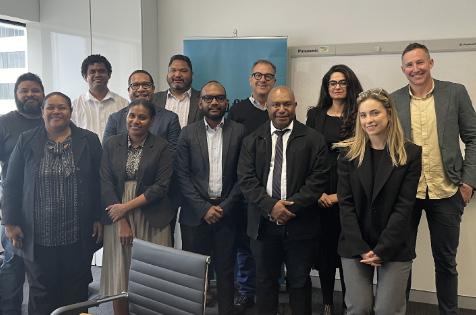 1990’s Vanuatu Court admission – JR far right.
1990’s Vanuatu Court admission – JR far right.
63

Public interest law and social justice
A career in public interest law and social justice provides law graduates the opportunity to utilise their legal qualification to spur on real change in the community and within the legal system.
64

Public interest lawyers work to improve the access, representation, and experience of marginalised groups in the legal system. This pathway is undoubtedly one of the most rewarding for legal practitioners.
For upcoming graduates inspired to pursue a career in social justice, community law centres have a number of graduate programs and internship offerings that will be advertised at the links on the right.
Working with a reform body, such as the Australian Law Reform Commission, is an avenue worth considering for graduates with an interest in policymaking.
Useful Resources:
ANU Law Reform & Social Justice
https://lrsj.anu.edu.au/
Australian Law Reform Commission
https://www.alrc.gov.au/about/careers/
Aboriginal Legal Service ACT/NSW
https://www.alsnswact.org.au/jobs
Women’s Legal Centre ACT
https://wlc.org.au/get-involved/work-with-us/
Legal Aid ACT
https://www.legalaidact.org.au/about-us/workingat-legal-aid
The Public Interest and Social Justice section covers:
• Access to Justice is Every Lawyer’s Responsibility by Hai-Van Nguyen
• The Experience of Being a Social Justice Advocate by Nicholas Stewart
• The Global Challenge of International Law by Donald Rothwell
65
Access to justice is every lawyer’s responsibility
I believe most lawyers choose a career in law out of a desire to help others and to make an impact. As law students, we learn that the cornerstones of our legal system - the rule of law, the right to a fair trial, procedural fairness - are built on ideas of fairness and equality. We learn that the practice of law is more than a job; it is an exclusive profession that comes with immense privilege and responsibility. Once we finish our law degrees and enter the workforce, the values that underpinned our studies meet more pragmatic considerations. For those who decide to enter legal practice (instead of business, politics or policy), the career options are seemingly divergent - be a corporate lawyer or work in the social justice sector. We are required to choose, even before we know what these roles entail. Sometimes the choice is illusory since there are far fewer roles in the social justice sector than there are in private practice. Whichever path you choose, there can be a perception that if you pursue a career in corporate law you have "sold your soul" or are indifferent to social justice. Equally, those who work at Legal Aid or community legal centres are seen to be the only lawyers that can truly impact social change. Having worked in both the corporate and legal assistance sectors, I believe this kind of binary thinking is both limiting and unhelpful. It ignores the many ways in which the law can be used as a tool for social change, and it undermines the potential for lawyers to make a social impact, regardless of their chosen career. I started my legal career as a graduate lawyer at Clayton Utz. I then moved to Legal Aid, where I practiced in criminal law, family law and civil law. Working at Legal Aid was immensely rewarding and
challenging. It also cemented my passion for working with vulnerable clients. After three years at Legal Aid, I had the rare opportunity to return to Clayton Utz as a full-time pro bono lawyer. I have been a pro bono lawyer for 11 years now and it has been incredibly heartening to watch pro bono work evolve from ad hoc legal assistance to a dedicated movement that is now at the core of legal practice.
Rule 3 of the Australian Solicitors Conduct Rules states that "a solicitor's duty to the court and the administration of justice is paramount and prevails to the extent of inconsistency with any other duty." In my view, the highest expression of a lawyer's duty to the administration of justice is the provision of pro bono legal services. Our legal system doesn't work if significant portions of the population don't understand how the law impacts them or cannot meaningfully enforce their rights.
Fortunately, it has never been easier to do pro bono work. The profession now recognises that for pro bono work to be meaningful and have an impact, it must be delivered in a targeted, informed
and professional way. Many law firms now have established pro bono programs, with dedicated partners, lawyers and coordinators, whose role it is to help source, allocate and supervise pro bono work. As someone who is about to enter the legal profession, you not
66
only have the ability to be part of this movement, but to help shape it.
When applying for legal roles, you can test a firm's commitment to pro bono work by considering the following:
• Are all the lawyers at the firm involved in pro bono work?
• Is pro bono work integrated into the firm's culture and structures, and is it spoken about by senior management?
• Are there lawyers who can give you direct insight into the type of pro bono work they have been able to do, and their overall experience of undertaking pro bono work at the firm?
• Is there a focus to the firm's pro bono work?
If you find yourself working for an organisation where there is not a strong pro bono ethos, start a conversation about it. Speak to a trusted mentor, and tell them you would like to explore opportunities for undertaking pro bono work. After all, many of the now well-established pro bono practices started out with one or two passionate lawyers speaking up about wanting to do pro bono work. Some of those lawyers are pro bono partners now.
If pursuing a career in social justice is where your heart is, then stick at it. Don't be disheartened when you encounter setbacks. (I had to apply for the NSW Legal Aid graduate program twice, before I got in). Just as importantly, don't join a commercial law firm thinking you can just do pro bono work, or bide your time until the dream pro bono job comes along. Recognise that as lawyers, we are uniquely placed to help others, and to make a broader impact on society, regardless of where we may end up working.
Hai-van Nguyen Senior Associate, Pro Bono


67
The experience of being a social justice advocate
* Please note that this article contains reference to violence against members of the LGBTQI+ community.
What is your current role and specialisation?
I am an equity partner at Australia’s only out loud and proud LGBTQ law firm. We have clients across Australia (and globally) and we are headquartered at 235 Macquarie Street, Sydney. I work in criminal law about 80% of the time, and defamation / human rights litigation the rest of the time.
What was your pathway towards social Justice?
When I was 14 a colleague told me that he would go out on weekend with friends and bash and rob gay men. At that time I didn’t even know I was gay but as I made my way through my studies I developed a passion to right society’s wrongs of the past and get justice for the gay men, trans men and women, lesbians and queer people who were bashed and murdered because of their sexual minority status.
What attracted you to social justice?
I worry about people who do not have the social infrastructure that I do. I am lucky enough to have a supportive family, an education, good friends and supportive colleagues but many in society only have one of these things, and sometimes none at all. I want to help those that don’t have the resources to help themselves. We cannot prosper as a country if we do not support those in need.
What are the skills required to be a human rights lawyer/social justice advocate?
A passion for equality; an intellectual understanding of the rules, systems and entities that regulate human rights, including Australia’s international human rights obligations; knowledge of international human rights systems, awareness of historical domestic and international human rights matters; and knowledge of the significant gaps that exist in Australia’s legal system.
What are the most rewarding and challenging aspects of working in human rights/social justice law?
From a criminal law perspective, it is rewarding to help clients navigate a very complex and brutal system. It is also rewarding to problemsolve and work with clients to identify exculpatory evidence, argue the meaning of words and the intention of parliament, to persuade judges and juries and work with experts. From a pure human rights perspective, it is rewarding to work with colleagues in the human rights space, to bring about human rights legislation, educate members of parliament on Australia’s international human rights obligations, and advocate for equality of all human rights in society.
68
What advice would you give your university aged self?
Stress less, enjoy your studies, enjoy university life, participate in society and don’t pressure yourself to get out as fast as you can.
How do you see human rights law and social justice evolving in the future?
I am hopeful that all states and territories in Australia will have human rights acts, and I am hopeful that Australia will adopt a human rights act at the federal level. At an international level, I am cynical. I am not sure human rights and social justice objectives can be achieved through the United Nations, in the current climate of geopolitical wars.
What are some of the challenges currently facing social justice?
There are many. The little amount paid to people who are unemployed. The climate crisis, particularly in relation to climate change and its disproportionate impact on those with the least resources. Political courage from our leaders.
Nicholas Stewart Equity Partner


69
THe global challenge of international law
What is your current role and specialisation?
Professor of International Law at the ANU College of Law with a particular interest in the law of the sea, international polar law, and international law as it operates in Australia.
What was your pathway towards A career in international law?
I completed a BA/LLB at the University of Queensland, and then progressed to an LLM at the University of Alberta in Canada. The LLM was a coursework/thesis program where I wrote a 250 page thesis on the law of maritime boundary delimitation. I followed that up with a MA (Political Science) at the University of Calgary in Canada where I completed another coursework/thesis program and wrote a thesis on Antarctic governance. On returning to Australia I commenced as a tutor and then a lecturer at Sydney Law School, where I undertook a PhD on international law and the polar regions. I have been a full time academic since 1988.
What attracted you to international law?
In high school I was always interested in developing a career that would allow me to pursue my interest in international relations and politics, and which could give me an opportunity to also travel. At Law School I discovered that public international law – as practised by government and researched and taught in universities – very much allows for that.
What skills are required to be an academic in international law?
Fundamentally you need to be engaged, invested, and enthusiastic about your research. These are really core skills for any ANU academic. It also helps if you have an awareness as to why international law matters to your students, your colleagues, and society. Being able to passionately communicate your knowledge of international law also helps.
What are the most rewarding and challenging aspects of working in international law?
I particularly enjoy working on matters of national and global significance. These are matters at the forefront of public debate – such as the Russian invasion of Ukraine, or international law and climate change –which gives the areas I research and teach in an immediacy all the way from the ordinary citizen to the highest levels of government. The challenges are that new issues constantly emerge which means you need to be capable of considering new and novel issues that you may not have adequately researched or thought about previously; such as international law and its significance during a pandemic!
What advice would you give your university aged self?
Be patient and enjoy yourself.
70
How do you see international law evolving in the future?
International law will increasingly become mainstream; that trend is already evident and can especially be seen in Europe. Australia will continue to embrace international law because of the influence it provides to middle powers. International law will also continue to expand and develop in newer areas such as international climate law, and cyber law.
What are some of the challenges currently facing international lawyers?
The science/law interface that is reflected in areas such as autonomous ships at sea, drones and armed conflict, climate change, cyber law, and international health law as reflected during the pandemic are ongoing challenges. They will require international lawyers to expand their skills beyond their distinctive discipline area.
donald Rothwell Professor of international law
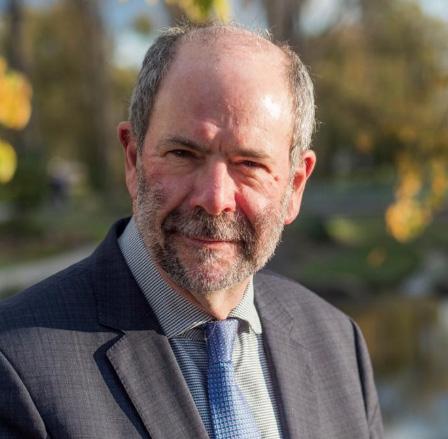

71

Legal academia is concerned with the pursuit of legal study, critical discourse, and research.
academia
72

Academia is a challenging, yet highly fulfilling career path. Academics play an integral role in contributing to law reform, and exploring the strengths and weaknesses of the existing legal system. Academics are at the forefront of legal innovation.
The pathway to academia is extremely diverse, and it is often the academics with versatile and extensive background experiences that have the best foundation for a career in academia. Academics will often practice the law before completing a PhD. The path is not rigid, however. Many of the legal academics at the ANU have had careers in the public service, at research think tanks, or are continuing to practice the law as a solicitor or barrister while teaching
The Academia section covers
• Making a Career Out of Academic Law by Emily Crawford
• Pursuing Different Paths by Kieran Pender
• Academia as a Career Choice by Stephen Bottomley
• An Unusual Route into Academia by Willian Boothby
73
making a career out of academic law
What is your current role and specialisation?
I am Professor of International Law at the University of Sydney, specialising in the law of armed conflict.
What was your pathway towards A career in international law?
I came to this specialisation almost by accident – I had never planned on being a lawyer, but I was interested in the field generally and the subject ‘Public International Law’ fit into my timetable when I was doing my degree! From there, I took every international law subject available to me. I hadn’t planned on making the law of armed conflict and international law my specialisation – but within minutes of my first class, something clicked, and everything made sense – it was like finally figuring out how the world worked. It also picked up on my previous areas of interest – such as history, politics, sociology – I found it fascinating to see the connections between major historical events and major changes in the law. After a few years out of study and working full time, I realised I wasn’t ‘done’ with study, and wanted to make it my life’s work – I enrolled in a PhD, which eventually led to teaching, a postdoctoral position, and then, eventually, a permanent position at the University of Sydney Law School. It took time – there were periods of uncertainty, when I was working as a casual academic, and wasn’t sure whether permanent work would be in my future, but it finally happened.
What are the most rewarding and challenging aspects of working in international law?
What is rewarding about working in international law is what makes it challenging – it’s a field that deals with the major and most pressing issues of the world – protecting human rights, preventing and punishing atrocities, addressing issues such as climate change, poverty, inequality, among other things. So you have the chance to try and grapple with these topics, to contribute to trying to find solutions. But these issues defy easy solutions, and one person alone cannot hope to solve them, so it can be frustrating, to feel like there is no hope for things to change. But you persevere, and commit to the endeavour – teaching and research is immensely rewarding and there is nothing else I would rather do with my time.
What advice would you give your university aged self?
If I could advise my University age self, I would tell her to stay strong, and to trust that things would work out eventually. But I would also let her know that there was no timetable that needed to be met, and that things might take longer to eventuate. During high school and University, I was very stuck on this idea that there were specific milestones that I had to achieve by a certain date or age, in order to be a successful human being. And while have a set of achievements you want to attain can be a great motivator, it can also be limiting
74
– it can make you feel like you’ve failed what is often an arbitrary self-imposed test. So I would let University Me know that milestones and achievements are great, but not everything, and don’t need to completely dictate the parameters of your life.

 Emily Crawford
Professor of international law
Emily Crawford
Professor of international law
Pursing different paths
What is your current role and specialisation?
I’m fortunate to wear a number of hats. I’m a senior lawyer at the Human Rights Law Centre, working on whistleblower protections, secrecy and free speech. I’m also an honorary lecturer at the ANU College of Law, where I research on the implied freedom of political communication and teach constitutional law and conflict of laws. I also write, mainly for The Guardian and The Saturday Paper.
What was your pathway?
Luck! I was fortunate to juggle my law degree with work as a journalist, and as a paralegal at a local Canberra firm, working in employment law. As graduation approached I didn’t want to give up any of these areas. I was told by several people that I needed to pick, to narrow, to focus – but I didn’t want to! I was lucky to get a job in London working in legal policy at the International Bar Association, and they were willing for me to continue writing on the side. I was there until Covid hit, when I returned to Australia and ended up at the Human Rights Law Centre. And for most of that time I’ve kept researching, tutoring and now lecturing at the ANU, as a visiting fellow and now as an honorary lecturer.
I feel balancing my different interests/skills has been a positive – I’m a better lawyer because of my media background, and I’m a better writer because of my legal skills. I have also been fortunate to have accommodating employers (perhaps not every workplace would give you a month off to cover the FIFA World Cup, or the Olympics). However, I feel that if you work hard and demonstrate your value, most places are happy to accommodate.
What advice would you give your university aged self?
As someone who did not want to pursue what might be described as a ‘traditional’ legal career pathway – clerkship, graduate program, commercial law etc – I was sometimes stressed at the lack of clear opportunities for junior lawyers in other areas. That remains a challenge and I’m not saying there’s a right answer, but I would tell my university-self to worry less about the future and be more open to saying yes to opportunities, taking risks and being comfortable that it would all work out. I did not have a clear idea of what I wanted to do after graduating and that stressed me out, particularly seeing friends with clear, linear pathways ahead of them. But it works out. With hindsight, perhaps I could have stressed less.
What are some of the challenges currently facing the profession?
The legal profession has a long way to go towards being the diverse and inclusive profession it needs to be. Especially at senior levels, the profession does not reflect society. That must change. While working at the International Bar Association, I worked to address bullying and sexual harassment in law – too many legal workplaces remain toxic and too many lawyers perpetrate inappropriate conduct against others. We all have a role to play in ensuring safe, supportive and inclusive workplaces.
Kieran Pender Senior Lawyer, Human Rights Law Centre Honorary Lecturer, ANU College of Law Journalist

76
Academia as a career choice
What is your current role and specialisation?
What was your pathway towards academia? and what attracted you to
I am an Emeritus Professor, having retired after forty years as a teaching and research corporate law academic (32 of those years at Why did I become an academic? When I finished law school, I did not have any particular career path in mind. As I thought about the different options, I realised that two things were important for me: the pursuit of ideas – understanding why the law was the way it was and exploring ways to make it better – and the fun that can be found in legal education – learning about the law and helping others to do that. A job as a legal academic became the obvious career choice, and I have never regretted it. The same is true for the many academics with whom I have worked over the years. In particular, there is a shared passion for the time spent in the classroom, helping students as they expand their legal knowledge and understanding.
What are the skills requried to become an academic?
Unsurprisingly, the academic world has changed considerably since I began my career. Indeed, the pace of change seems to have accelerated. The increasing use of online methods of teaching (spurred on by the COVID pandemic) and the still-to-be fully understood challenges of AI for students and teachers are just two examples of this. But while these changes affect the way in which academic work is done, the core of the job remains essentially the same. The job of a typical legal academic has three main components:
teaching and supervision; research; and service and outreach.
For law students, the teaching part is the most visible, but it extends well beyond the time in the classroom (physical or online). Teaching preparation (staying up to date with changes to the law and new methods in education), student consultation and advice, coordinating with other course teachers, assessment and marking – all can easily fill the academic’s work time. Another really enjoyable aspect of teaching is the one-onone supervision of research students – whether undergraduate or PhD. This is where many future academic careers are fostered. Research, and publishing the outcomes of that research in academic journals or books, is a core academic expectation. For many academics, their area of research will overlap with the subjects that they teach, but others enjoy a more diverse research agenda. The service and outreach expectation has two dimensions. Internally, it covers time spent on law school or university committees tasked with matters such as curriculum development, student engagement, or ensuring compliance with professional standards. Externally, academics are encouraged to contribute their expertise to government inquiries, the legal profession, community organisations, and other similar opportunities.
From all this, it follows that there is a diverse range of skills needed to be an academic, particularly in research methods, written and oral communication, and time management. As for the formal requirements, today an entry-level position in an Australian law school will typically require the candidate to have completed an LLB or JD degree and a PhD. Depending on the position, expertise in a particular area of law may also be expected.
77
What are the most rewarding and challenging parts of working in academia?
There are many rewards in an academic career. There are also challenges: the nature of academic work means that it is not easily contained within a 5-day working week, or a 9 to 5 working day. But, reflecting on four decades as a working academic, the rewards prevail. One of the greatest of them occurs when I meet past students who have gone on to establish their own careers, in so many diverse areas. The satisfaction from having been part of their learning journey is, I think, unique to the academic career.
Stephen Bottomley ANU College of Law


78
An Unusual route into academia
What is your current role and specialisation?
I am an Honorary Professor at ANU and my specialisation is the International Law Relating to Armed Conflict, particularly the Law of Weaponry, the Law of Targeting, Cyber Warfare Law, Nuclear Weapons Law and the law dealing with the use of AI and other modern technologies in warfare.
What was your pathway towards academia?
My pathway was via a 30 year military legal career and the trigger for my interest was membership of the UK Delegation to the Oslo negotiations that eventually produced the Mine Ban treaty.
The attraction was that as I was getting older, it seemed to me that teaching younger minds would be a good opportunity to pass on the knowledge and experience I had, or some of it at least. what attracted you to academia?
What are the skills requried to become an academic?
The skills I find necessary are the ability to write clearly, the ability to communicate complex ideas simply in the oral setting and above all a commitment to my subject as it is the teacher’s commitment that motivates the students.
What are the most rewarding and challenging parts of working in academia?
The most rewarding is to see students becoming enthused, to see them gain reasoning skills they did not previously have and to learn from their approaches to problem-solving, as learning
often goes both ways. The most challenging aspect is teaching a class on Zoom that is not prepared to open their screens.
What advice would you give your university aged self?
The advice to myself is keep going as long as you enjoy doing it, but the minute you get the impression that you are no longer firing the students’ interest, that is perhaps the time to pass the baton.


79
William Boothby Honorary Professor at ANU


Firm Materials
81







With 32 offices across the world and a rich history spanning 200 years, we’ve established ourselves as a leading adviser in all areas of the law.
We offer the reach and insight of a global network combined with deep local market knowledge, to help our clients navigate a complex and constantly changing global landscape.
Our people are our greatest asset. Explore our history, our people, and be inspired to create your story at Ashurst.



Begin your story now at ashurst.com/careers
Create your story at Ashurst
Tips for success
Make a great first impression
Consider your personal brand, how you want to be perceived and recognised in terms of your strengths. The best way to create a good impression is by being authentic.
A great attitude, enthusiasm for any task and the ability to quickly build rapport is an asset.
Remember, a 3.5 to 4-week clerkship is an extended interview for a graduate position in locations with multiclerkship opportunities.
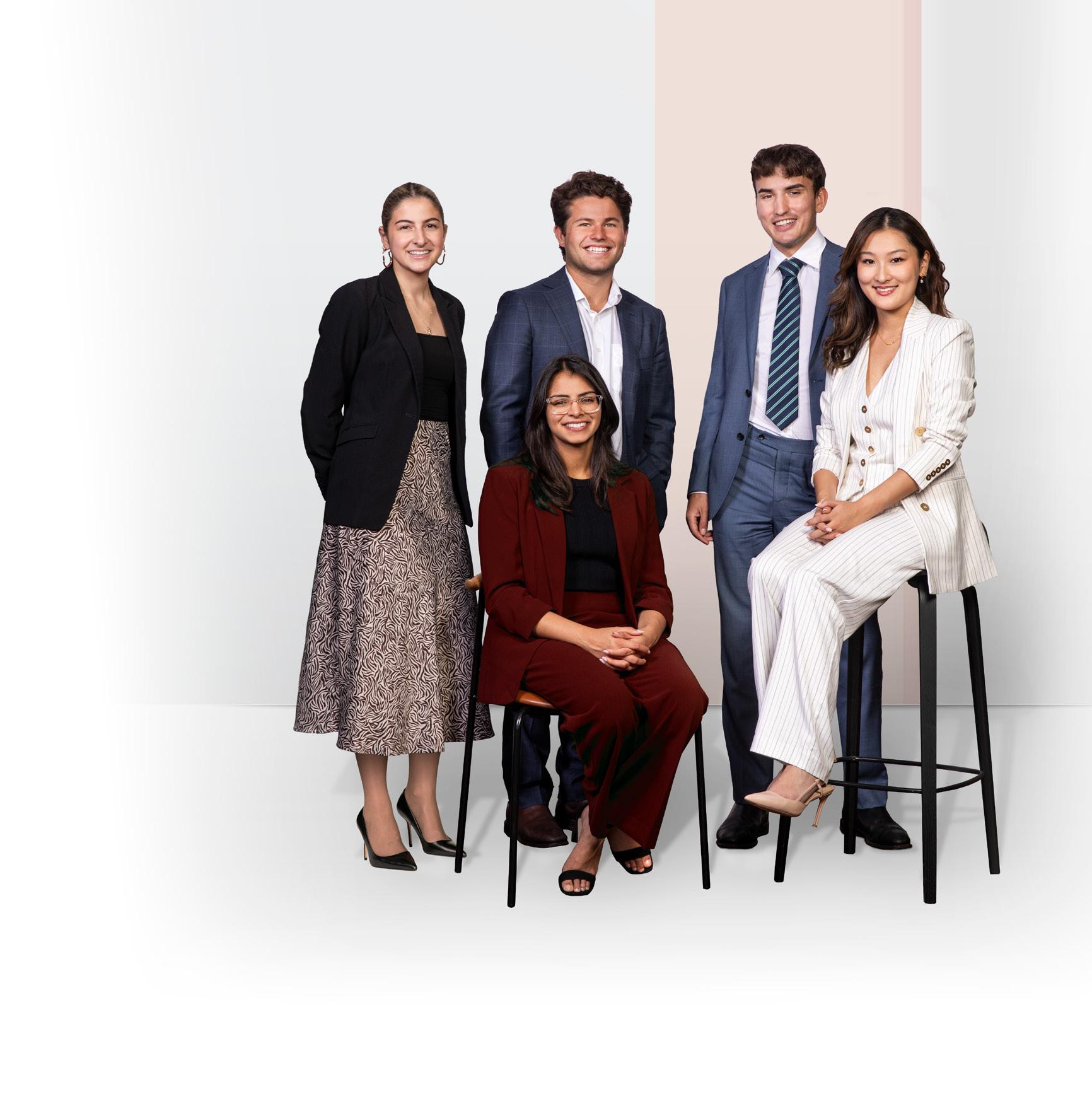
Show initiative and seek opportunities
Have a clear picture of what you want from your clerkship, what you want to learn about the firm, and the type of work you want to get involved in.
Take the initiative to get to know your team as well as other practices across the firm, meet as many people as possible and try to get involved in different types of work, projects and activities.
Communication is vital
Take on various work for different people across the team, but don’t forget the importance of managing your priorities.
Clerkships involve several training sessions and activities. You will also be completing various projects for people across your team; make sure you keep your team and supervisor updated on your workload and training schedules to ensure your success.
Get feedback
A clerkship is an excellent opportunity for you to learn and develop your legal knowledge and skills, remember to request feedback after completing tasks, as acting on this feedback is a great way to demonstrate your ability to learn quickly – an essential skill for junior lawyers.
Take the time to follow up with the team members that have assigned you tasks and get their thoughts on the work you have completed - just be conscious of their workload and the timing.
Develop your networks
Speak to as many people as possible. This is your opportunity to find out if Ashurst is the place you want to begin and grow your career.
Take every opportunity to meet people from across the firm to learn about the practice groups, and if they are people you would like to work with in the future.
Lastly, take the time to get to know your fellow clerks - you may be colleagues one day!
Begin your story now at ashurst.com/careers








your tomorrow
Imagine
Sometimes it's hard enough to know where you will be tomorrow, let alone in ten years. Who knows what the world will look like then.
But you know you want to be ready for it. You want to help create it.
That means building up your legal skills, industry knowledge and networks. Doing work that stretches you and shapes society. Learning more about yourself and the world. Forging connections in Australia and overseas. Making friends.
We get that. It's what we do every day.

When I started here as a grad, I never imagined I'd work on energy deals that were worldfirst and changed Australia's direction.
It all comes from an agile, questioning firm culture that still inspires me today as Chief Executive Partner, and challenges us all to shape the future with our clients.
 Emma Covacevich Chief Executive Partner
Emma Covacevich Chief Executive Partner
Ready to imagine?
You'll find more information about early careers at Clayton Utz on our site
READY. SET.
FLEX.
PRACTICAL LEGAL TRAINING
Morning. Noon. Or Night. Coursework on the couch. Or in-person workshops. It’s PLT built by you, for you.


Legal Counsel at Lendlease



Discover Australia’s leading PLT Program Your Story, Your Career Be the Whole Lawyer. Stay connected, sign up to our mailing list.






Choose your next move wisely

A better place to work
Our approach to graduate training and development is different to other firms. We offer our graduates the opportunity to get hands-on experience, working on market-leading work in a down-to-earth environment where people thrive.
Our lawyers take on the work that reflects their ability, not their job title. You will also benefit from our structured and bespoke professional development program.
There are no barriers to your success with us.

Working at Jones Day…
One Firm Worldwide®
Jones Day is a global law firm with more than 2,500 lawyers in 42 offices across five continents. The Firm is distinguished by: a singular tradition of client service; the mutual commitment to, and the seamless collaboration of, a true partnership; formidable legal talent across multiple disciplines and jurisdictions; and shared professional values that focus on client needs.
The Firm ’s 125 years of s ustained growth—in experience, reputation and successful c lient interaction—have been built by its dedication to a ‘One Firm Worldwide’ philosophy, which fosters the c reation of interoffice and cross-practice teams, assembled to ensure that c lients receive the best possible guidance and representation, without regard to barriers conventionally imposed by geography, borders, time zones or language.
Australia
J ones Day’s presence in A ustralia has grown significantly. The Firm has added new offices in Melbourne, Perth and Brisbane over the last five years in addition to our office in Sydney, reflecting our commitment to expanding our service to the Australian market.
Our lawyers wor k in a dynamic and stimulating multidisciplinary environm ent by collaborating with colleagues from different practices and different offices worldwide.
We c ontinue to attrac t many of the legal industry’s mos t highly regarded and sought-after lawyers while maintaining our focus on promoting internal talent through the ranks.
The New Lawyers Group
J ones Day recognizes that many law s tudents leave law s chool not k nowing which practice they want to enter. We also believe that a more well-rounded lawyer is a better lawyer and that a wide range of experience is valuable to a new lawyer. Accordingly, many years ago Jones Day created the New Lawyer s Group, which allows new associates to gain ex posure to different practice areas and lawyering s ty les at the Firm before making a c ommitment to a specific-practice.
We provide extensive training through the New Lawyers program. Each year, we endeavor to bring together new associates from across the Firm at the “New Lawyers Academy” in Was hington for three days of hands-on training and meetings with Firm leaders. In addition to helping them understand Jones Day’s culture, organization and operation, the Academy gives our new lawyers the opportunity to meet their peers in the Firm’s other offices.


Graduate and Clerkship Program
We run clerkship programs at Jones Day across our offices in Australia that offer selected positions to talented students who are in their penultimate year of university We give our clerks real work for real c lients, to provide them an oppor tu nity to learn what the practice of law at a large firm is all about. Providing challenging assignments also allows us to ass ess clerks’ potential to deliver first-rate legal services and to flouris h in J ones Day ’s c ulture We a im fo r c ler ks to become future graduates of the Firm.
A Culture of Client Service and Collaboration
J one s Day’ s commitment to c lient service mean s our law ye r s wo rk togethe r i n a c ollaborativ e atmospher e where teamwork is essential , respect for an d fro m colleagues is the norm, and credit is shared for a job well done.
In fact , every facet of the Fir m i s s tructure d to prom ot e an env ir onment that’s client-focused, but also profes sionally fulfillin g for lawy er s a t any c areer s tage W e expec t our lawy er s t o foc u s c ompletely o n a c lient’ s needs , wit h the full s upport and enc our agem ent of their peers We recog nize that partners and associates alike contribute to the Firm in a variety of ways, and we reward lawyers for their overall contributions to the Firm and for promoting the Firm’s values.
42

The future of law. Just like you.
Kick-start your career with an awardwinning boutique.
We are the good kind of different: a modern law firm for Government clients, with the personal touch of a boutique. Recently named as GovernmentTeamof theYear , we advise on some of Australia’s most sensitive, complex, and strategically important projects.
Are you ready to take the challenge?
Learn
We invest in the learning and improvement of our people, at all stages of their career.
Our people are supported through hands-on training, mentoring, and leadership initiatives.
From day one, you will take part in our dedicated Career KickStarter program to develop the skills and know-how to shine bright.
Thrive
Develop
We focus on personal development, relationships, and growth, rather than billable targets.
Career progression and development is not treated as an after-thought.
We provide a clear career path, supported by a structured professional development program that is transparent and achievable.
At Aldermane, you will work with some of Australia’s leading lawyers on high-risk, high-value projects to secure our nation’s future.
We take a people-first approach to legal services: we pay abovemarket salaries and provide greater flexibility and work-life balance than traditional firms.
aldermane.com.au


Canberra | Sydney | Melbourne find out more:
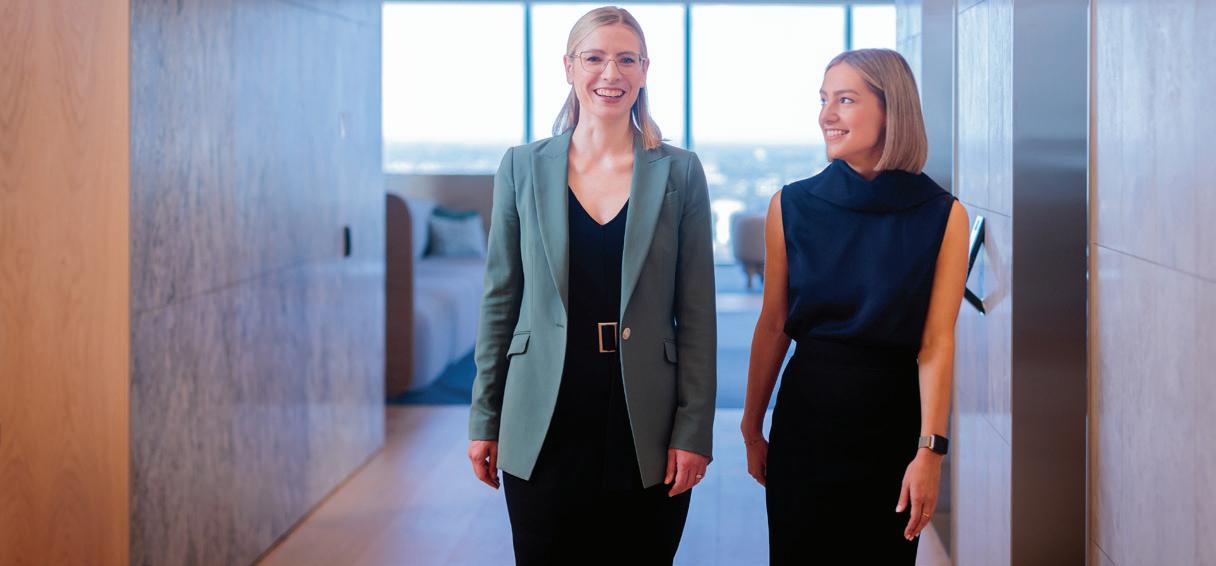
Ready to shape the future? YOUR GROWTH. OUR AMBITION.
We're Herbert Smith Freehills, one of the world's leading international law firms. Join us and you'll be at the centre of high-profile cases, high impact deals and you'll grow from new experiences every day.
About us
With over 24 offices spanning Asia, Europe, Australasia, and the Middle East, careers at Herbert Smith Freehills offer our graduates the opportunity to experience being part of a truly global law firm. Working with some of the most significant organisations in the world, opportunities to have social impact, and learning from our world-class team every day will enable you to create solid foundations on which to build your career in law.
We’re proud to say that we put people first. Our firm is built on a diverse culture, reflective of the societies in which we live and work. That’s why inclusivity is key to our success. At Herbert Smith Freehills, you’ll be valued for what makes you different and accepted for who you are. We recognise the power of diversity and inclusion to drive innovation, collaboration and business outcomes. So, whether it’s working on the latest advancements in digital law, taking part in some of the biggest mergers and acquisitions around, or helping people through our extensive pro bono work – you’ll develop the skills to solve the most complex challenges in thoughtful and innovative ways.
We welcome different
Great lawyers are both curious and creative. We encourage you to challenge assumptions and open yourself up to new ideas. So, what exactly are we looking for?
There’s no single path to becoming an exceptional commercial lawyer. We look beyond your academic record and your technical aptitude. We’re focussed on finding people who have the curiosity to explore all the angles and the empathy to place themselves in their client’s shoes.
In line with our 10 Actions for Change we are proud to use the Rare Contextual Recruitment System (CRS). The CRS allows us to understand each applicant’s achievements in the context that they have been gained. We understand that not every candidate’s achievements look the same on paper – and we want to recruit the best people, from every background.
Clerkship program
We select many of our graduates through our vacation clerkships. During this immersive experience, you’ll receive hands-on practical experience, as you work on some of the diverse challenges facing the team you’re collaborating with.
You will gain a deeper understanding of life at the firm and what your future could look like if you join us. Some key features include the opportunity to:
• Sit within a specific team, delivering real work for key clients
• Before you join, submit a preference for a team to tailor your experience
• Navigate the first step of your career with partner and graduate mentoring support
• Attend workshops and presentations covering all our practice areas
• Contribute to our pro bono practice
• Work with cutting edge technology through our innovation projects
• Networking opportunities to meet people across the firm
Joining us
We offer a range of summer and winter clerkships across our Australian offices. If you have queries about graduate or vacation clerk positions, please visit our website: careers.herbertsmithfreehills.com/au/grads/ vacation-clerkships or contact one of our graduate recruitment consultants.
Please note: An application should only be submitted to the office where you intend to start your career as a graduate. Multiple applications will not be considered.

SYDNEY Positions 35-40
1 Summer
for all
Mon 10
2024
for all
Sun 14
Key Dates & Deadlines
Clerkship programs
Applications
2023/24 programs open
June
Applications
2023/24 programs close
July 2024 Offers made Wed 11 Sept 2024
HERBERTSMITHFREEHILLS.COM Contacts Naomi Fearnett Graduate Recruitment Manager GraduatesSydney@hsf.com



▪ ▪ ▪ ▪ ▪ ▪ ▪ ▪ ▪


WHERE BRIGHT MINDS MEET



DIVERSE, INTERNATIONAL AND COMMERCIALLY-SAVVY. CLIFFORD CHANCE IS WHERE BRIGHT MINDS MEET.
GET TO KNOW US
What areas of law do we practice?
Across our two Australian offices, Perth and Sydney, we advise clients on their most complex matters in areas including Corporate, Litigation & Dispute Resolution, Antitrust & Competition and Global Financial Markets.
Why are we different?
Our teams work across borders, languages and jurisdictions and share insights and expertise to achieve our clients’ commercial goals.
Secondly, we’re pioneers and work on many ‘first of a kind’ deals.
Finally, it’s the nature of our people - highly professional and self-assured, with an entrepreneurial streak. We embrace our culture of learning and collaboration.
CLERKSHIP PROGRAM
Who is eligible for clerkships?
Students must be at least in their penultimate year and are available to participate in the March 2026 Graduate Program.
When are our clerkship programs held?
Sydney: November 2024 – January 2025
Perth: November 2024 – December 2024
How many clerks do we take?
Sydney: 8 – 12
Perth: 4 – 8
Scan the QR code to submit your application.
Enquiries
Grads.Australia@CliffordChance.com
When should students apply?
You can apply between these dates:
Sydney: 10 June – 14 July 2024
Perth: 24 June – 28 July 2024
What kind of work can a clerk expect to do?
Our clerkship program is designed to provide you with a real insight into a legal career at Clifford Chance in Australia. Throughout the program, you will work alongside all levels of lawyers, including partners, while you assist with real-time matters.
You will have two rotations which allow you to experience two different practice areas.
Throughout the clerkship you will hear from various practice areas across the region which helps you develop a comprehensive understanding of life at a leading international law firm.
GRADUATE PROGRAM
Do we make graduate offers to the open market, or just through clerkships?
Graduate offers are primarily made from our clerkship program. However, if we decide to open applications to the wider market, we will also consider applications from students who have not participated in our clerkship program.
How many graduate jobs do we offer?
Sydney: 6 – 10
Perth: 3 – 5

Corrs Chambers Westgarth is Australia’s leading independent law firm. We’re known for delivering legal excellence, exceptional client service and outstanding results.
Our significant work
We let our work speak for itself. We’re proud to work with some of the biggest organisations in the world on their most important matters.
Our clients include more than half of the top 50 ASX-listed companies, some of the largest privately owned companies in Australia and a number of global Fortune 500 companies. We work with well-known organisations like AGL, Amazon, Australia Post, BP, Blackstone, CBA, Coles, eBay, Google, Johnson & Johnson, Medibank, NAB, PayPal, Stockland, TPG Telecom, Rio Tinto, BHP, TransGrid, Wesfarmers and Westpac. We also work with Federal and State governments, as well as on high profile and market-leading transactions.
Your time as a clerk at Corrs
The majority of our graduates join us after experiencing a seasonal clerkship program.
Our clerkships give you the opportunity to connect with partners and lawyers across the firm, learn what a ‘day-in-the-life’ at Corrs is like and experience the type of work we do and the clients we partner with.
During your time as a clerk, you will be allocated a supervising partner, mentor and buddy, who will support you through your clerkship experience as you work alongside some of Australia’s leading lawyers on high-profile work for major Australian and international clients.
You’ll be exposed to a broad range of interesting matters and have the chance to complete tasks such as conducting research, reviewing and presenting documents, attending client meetings, court hearings, mediations and settlements, as well as shadowing partners and lawyers in client meetings and business development activities.
Our Lawyer Development Program
The Lawyer Development Program is designed to support you in the formative stage of your career. It aims to build the capabilities and relationships that will drive career progression and underpin future successes, as rapidly as possible. Unique features of the program include:
Mentor partner – You will be allocated a mentor partner (in most cases your supervising partner in your first rotation) who remains in this role throughout the program and potentially beyond. This will build a personal and enduring relationship that transcends everyday transactional work. You will also be supported in each rotation by a supervising partner and SA/SC who will source meaningful and challenging work.
12 x 6 x 6 rotation structure – The first practice group rotation is 12 months to ensure you have time to learn on the job and build strong capabilities and relationships in your first year. In the second year, when you have an increased level of experience and confidence, you will complete two six-month rotations in order to gain exposure and build relationships across different groups. Formal learning – The program incorporates comprehensive formal learning opportunities including our national Graduate Academy, local Graduate Orientation, practical legal training with the College of Law, practice group induction sessions and the national Legal Excellence program.
Diversity and inclusion
We strongly believe that diversity in all its forms should be embraced and celebrated. This benefits our people, our clients, our firm and the industry at large.
Our commitment to diversity and inclusion includes gender equality, cultural diversity, LGBTQ inclusion, First Nations inclusion, carers support, disability inclusion and accessibility, and flexible working.
In 2023, Corrs was named a WGEA Employer of Choice for Gender Equality for the seventeenth year in a row and was the only Australian law firm to be recognised as a finalist for outstanding diversity and inclusion in the 2023 Chambers Asia-Pacific & Greater China Awards
@CorrsLaw @CorrsLawyers corrs.com.au/graduates CorrsLawyers
Corrs Chambers Westgarth
With a challenger mindset, G+T is always pushing the status quo and taking a stand on things that matter. That’s why we constantly seek new ideas, fresh energy and different perspectives from our clerks and graduates.
Work at the forefront of significant change in our society and economy, and open the door to experiences that will shape your career – wherever you want it to take you. Join us, and help us build Australia’s best corporate law firm. » Visit gtlaw.com.au/starthere


STARTS HERE
We’re King & Wood Mallesons. The top tier international law firm, from Asia, for the world The world’s leading organisations turn to us to unlock opportunities and deliver smart, considered, and confident advice Where others see problems, we see possibilities.
Our impact:

We are making progress towards our target of 40% female representation at partnership level
Innovation is in our DNA. We equip our people with the skills to partner with our clients and bring to life pioneering solutions which will help them to adapt, reinvent and evolve We believe innovation comes from giving our people room to grow At KWM, our people are encouraged to shape their own career path, supported every step of
Our LGBTIQ+ Inclusion Network at KWM (LINK) raises awareness of and advocates in relation to LGBTIQ+ issues and concerns, and promotes inclusion, provides support and builds a sense of community for LGBTIQ+ identifying people and allies
Our programs
SEASONAL CLERKSHIP PROGRAM
Applications open: 10 June 2024
Applications close: 7 July 2024
How to apply: Via our online application system Head to our KWM Early Careers website
We offer clerkships that give you insight into what it’s like to be a lawyer at King & Wood Mallesons. You’ll get to know our people, the way we work, our culture, practice areas, clients and more
You will learn the day-to-day skills to get you started, the core practice teams at King & Wood Mallesons, our culture, and our people You’ll find that people from every part of the business will help you by sharing their knowledge and supporting you through the early stages of your career and beyond
GRADUATE PROGRAM
We offer a unique future-focused experience and invest heavily in your development to support you throughout your journey. You will benefit from a bespoke comprehensive learning and development program tailored specifically for our graduates.
Delivered 44,131 pro bono hours in FY23, equating to 45 hours per lawyer
Our commitments:
Reduce our emissions by: Becoming certified carbon neutral by December 2022
Setting science-based targets by December 2023 and reaching net zero emissions by 2050 Complete
Source 100% renewable energy for our Australian operations before 2024
Update and re-certify our Environmental Management System by June 2022
the way with world-class training, coaching and hands-on experience
Diversity of thought, perspective and experience is critical to our culture We provide a broad, inclusive and open environment in which our people are fully supported to bring their whole selves
Our people donated 2,596 volunteering hours in FY23
Over $630,000 was raised & donated via DigDeep® (workplace giving project) to 27 community organisations in FY23
Undertake various energy, paper, water and waste reduction initiatives (ongoing)
Our graduate program has an emphasis on legal excellence, technical expertise, commercial skills, knowledge management, legal project management, innovation, social and self-development and client focus
We offer:
Culture of innovation, collaboration and high performance
Multiple career pathways where you can shape your future.
World-class training and coaching to unleash your full potential
High impact work for the world’s leading organisations
Relationships that last a lifetime
Key contact:
E
PEOPLE & DEVELOPMENT COORDINATOR
CANBERRA
TEL
+61 2 6217 6636
EMAIL EMILY JAYAMOHAN@AU KWM COM
careers.kwm.com/en/graduates-australia
M I L Y J A Y A M O H A N
T A K E C H A R G E O F Y O U R C A R E E R P A T H
Complete Complete Complete

From Day One you will have challenging, meaningful work, gain exposure to clients, be entrusted with a level of responsibility, work in a supportive and collaborative team and have regular access to our partners.
The training you receive throughout your clerkship will ensure you are thoroughly prepared and ready to get involved in and contribute to client work straight away.
The program begins with a comprehensive orientation which includes training and development activities.
Join our clerkship program and become part of a firm where you’re involved from Day One.

Scan this QR code to find out what it’s like to work at Maddocks.
Early careers at MinterEllison

Our clerks and graduates tell us that three key things make the MinterEllison experience:
1. Experiencing high profile matters in a top tier firm
2. Our culture
3. Our learning and development programs
Learn by working on real challenges
Right from the start you’ll work on real client engagements, preparing you for any challenge. Discover new areas of practice, and learn the technical knowledge and tools you need to achieve your career ambitions.
An award winning start to your career
Winner, Most Popular Clerkship Employer
Top100 Graduate Employer Awards 2024
Top Graduate Employers 2023
Australian Association of Graduate Employers
graduates.minterellison.com
Finalist, Most Popular Law Employer
Top100 Graduate Employer Awards 2024
Top Intern Programs 2023
Australian Association of Graduate Employers
Five reasons we’re different
Great roles in great matters
Our industry go-to-market strategy is key to achieving our growth ambitions. You could be working on the matters changing the landscape of law and legal practice.
Feed your curiosity
Our learning programs will help you build the skills you need to be the trusted advisor of tomorrow.
A focus on you
Our wellbeing program, leave policies and entitlements ensure our people are supported.
An inclusive culture
It’s no surprise that the MinterEllison workplace culture is awarded key inclusion awards and benchmarks. We’re truly inclusive and value diversity in all its forms.
A passion for social justice
You’ll have the chance to join our pro bono and community investment program to help address disadvantage.
For information and to apply visit graduates.minterellison.com
Your career is a timeline of accomplishments. Big steps and little steps that mark how you’ve grown. First days. First deals. First mistake – and how you learned from it.
So here’s your next big step – a first introduction to your future. We’re Norton Rose Fulbright; pre-eminent legal advisors to businesses and financial corporations across the world. And we might just be the right law firm to help you progress with purpose.

Email us at: Australian.Graduates@nortonrosefulbright.com
to learn more about student and graduate careers nortonrosefulbright.com
Progress with purpose
Scan
Sparke your career with us…
Deciding on the firm that’s right for you is a big decision. Is the culture right for me?
Will I receive quality work? Will there be people genuinely interested in my growth who can point me in the right direction? Does the firm embrace technology and take innovation seriously?
Why choose Sparke Helmore?
At Sparke Helmore, you’re encouraged to be actively involved as part of our vibrant culture, where you are able to work collaboratively with your team and across teams to deliver great results.
Working at Sparke Helmore, you will be provided with a unique range of opportunities to expand your knowledge with access to:
• Market-leading expertise—we are a full service national law firm. This means you will have the opportunity to gain experience in each of our Insurance, Government, Workplace, Corporate & Commercial and Property, Environment & Finance practice groups.
• Real legal work—from your first day, you will have the opportunity to get involved in legal work that contributes to the firm and its clients.
• Training and development—a combination of formal and on-the-job training that covers technical and soft skills.
• Mentoring and networking—we have a proud reputation for mentoring and facilitating relationship building across the firm in a way that fosters personal and career development, networking and the sharing of knowledge, experience and learning.
• Opportunities to give back—through our Pro Bono and Community Programs.
What do we look for in our lawyers?
Our people are key to our success. We are always on the look-out for lawyers with potential to progress, who fit with our culture and align with our values, and who demonstrate, among other things, intelligence, interpersonal skills, commitment, energy and commerciality.
Sparke Helmore lawyers are:
• all-rounders, who are engaged in extra-curricular pursuits as well astheir studies
• team players
• clear and concise writers, and
• confident and articulate communicators.
Your story is yours to define. We’d like to be part of it and for you to be part of ours. After all, the best stories are shared. Want to know more about Sparke Helmore? Visit the graduate program on our website.

www.sparke.com.au/join-us/graduate-program/ adelaide
| brisbane | canberra | darwin | melbourne | newcastle | perth | sydney | upper hunter
































 President at the ANU Law Students’ Society
President at the ANU Law Students’ Society





























































 1990’s Vanuatu Court admission – JR far right.
1990’s Vanuatu Court admission – JR far right.











 Emily Crawford
Professor of international law
Emily Crawford
Professor of international law





















 Emma Covacevich Chief Executive Partner
Emma Covacevich Chief Executive Partner





































